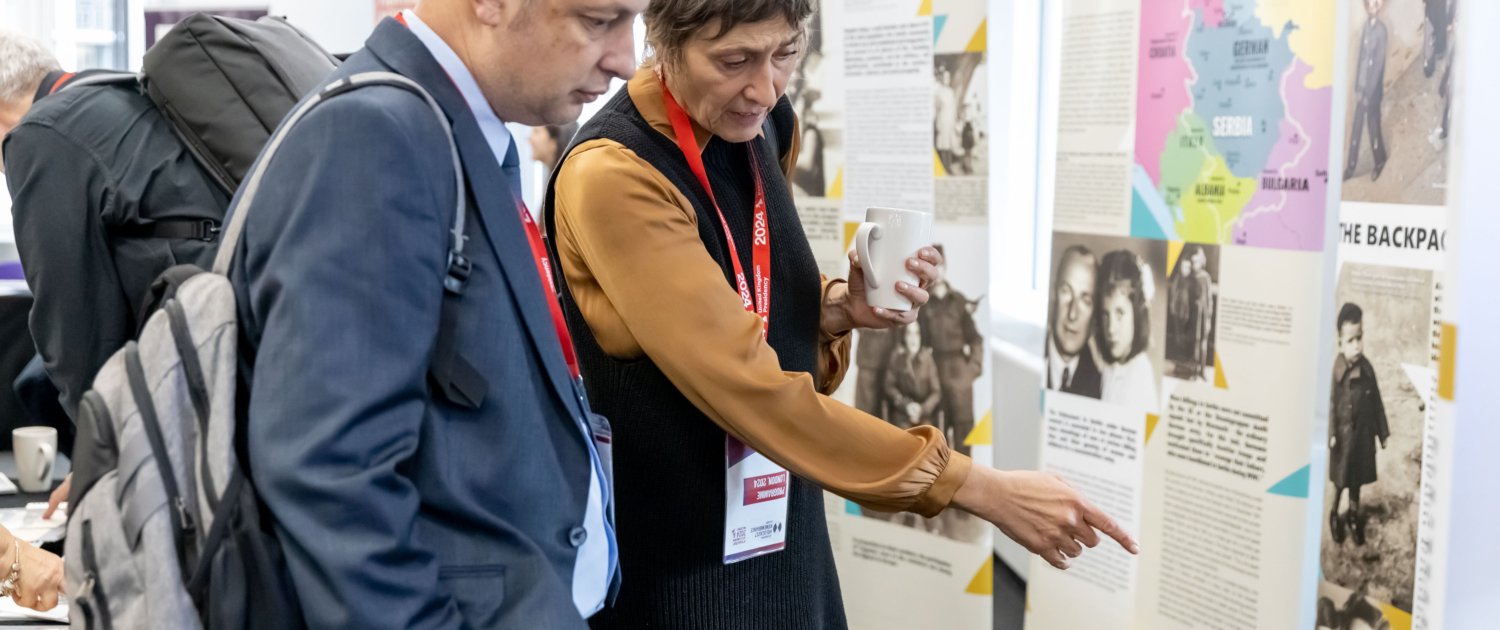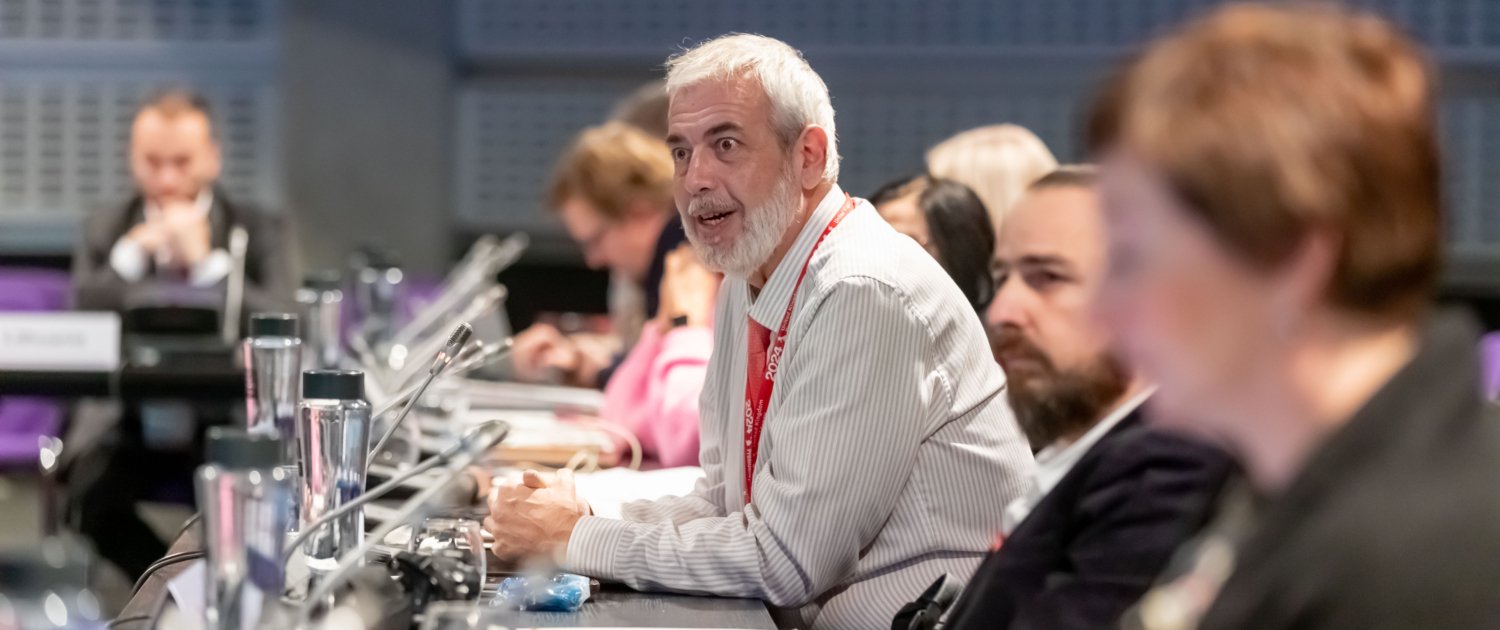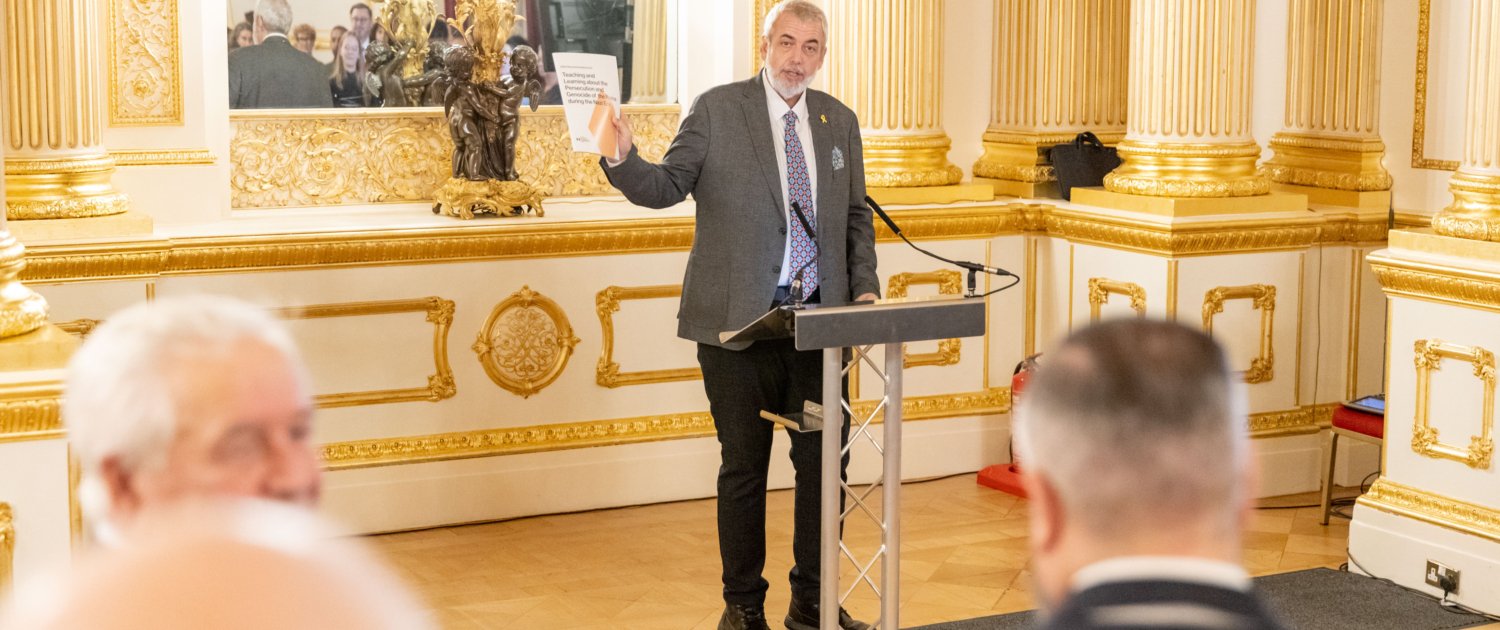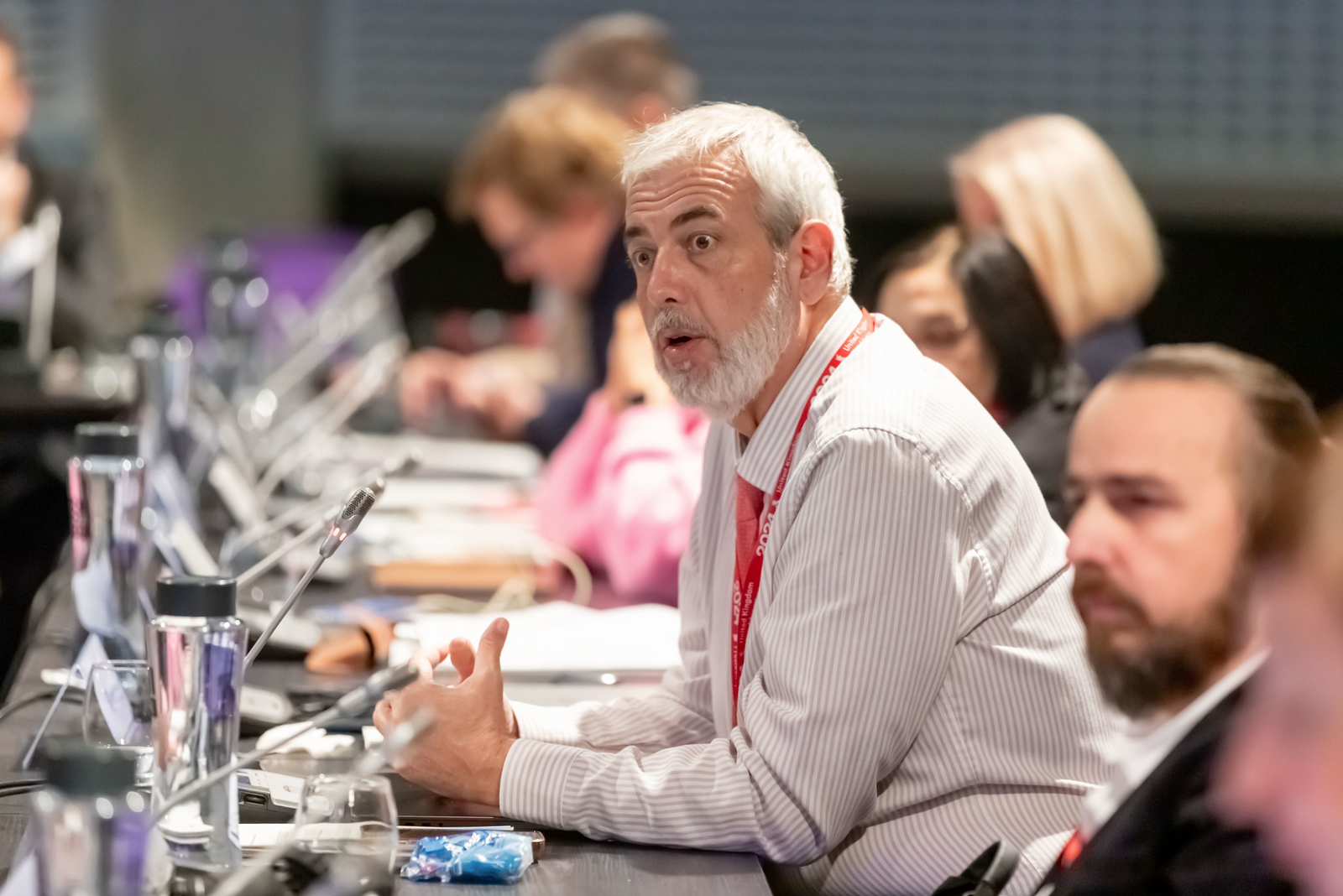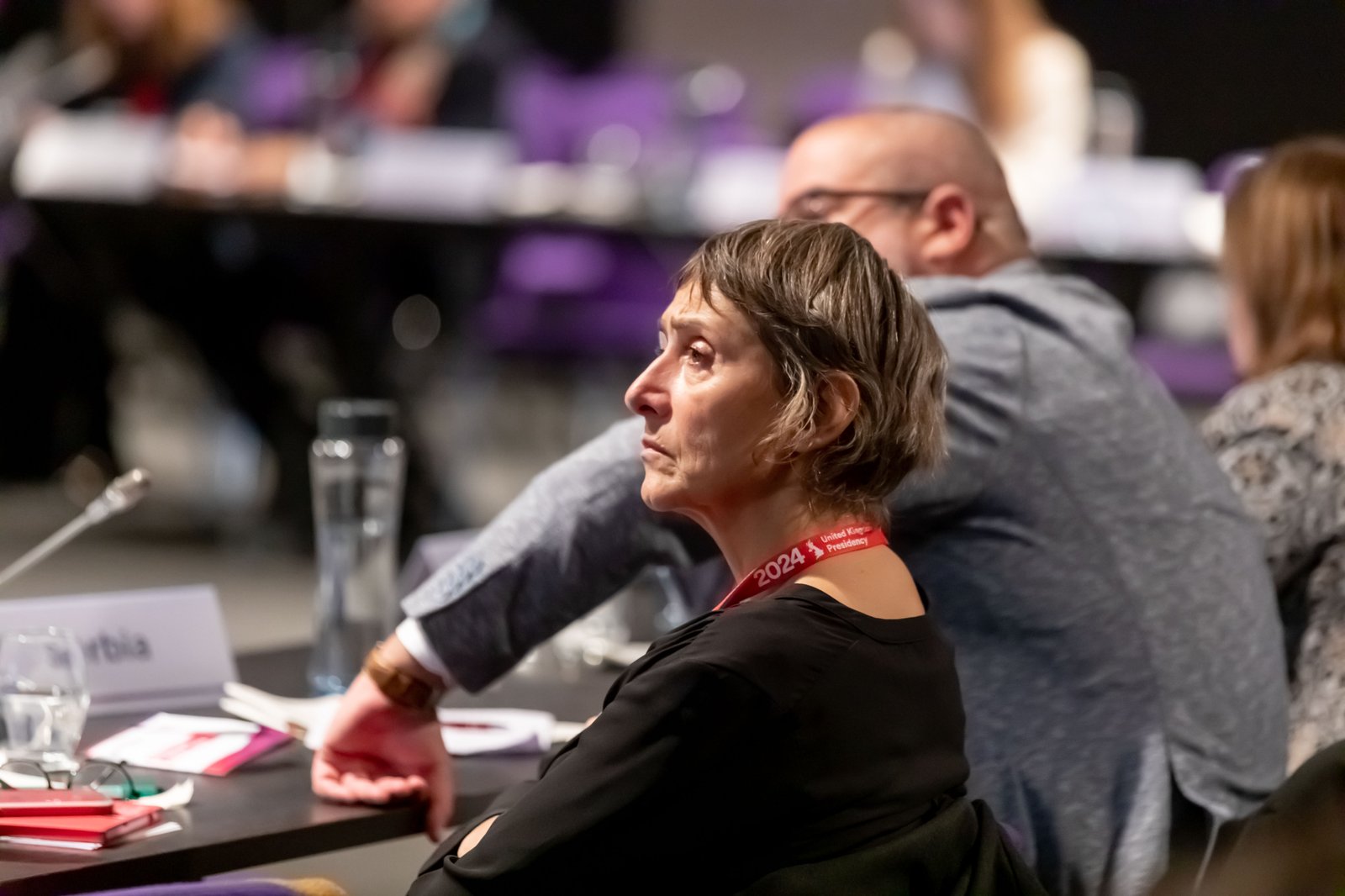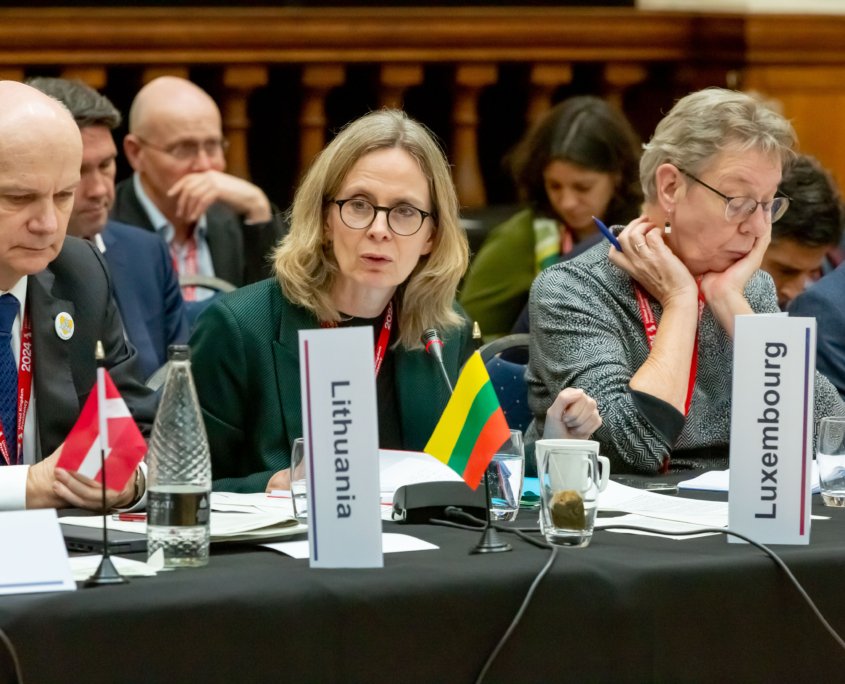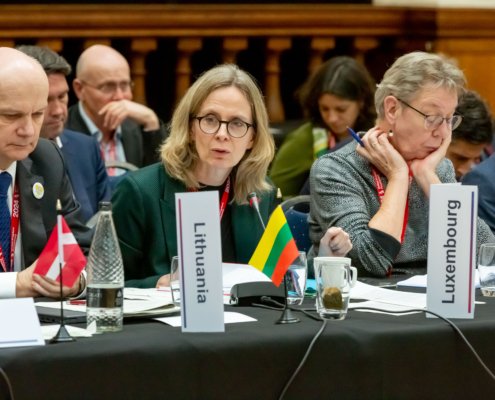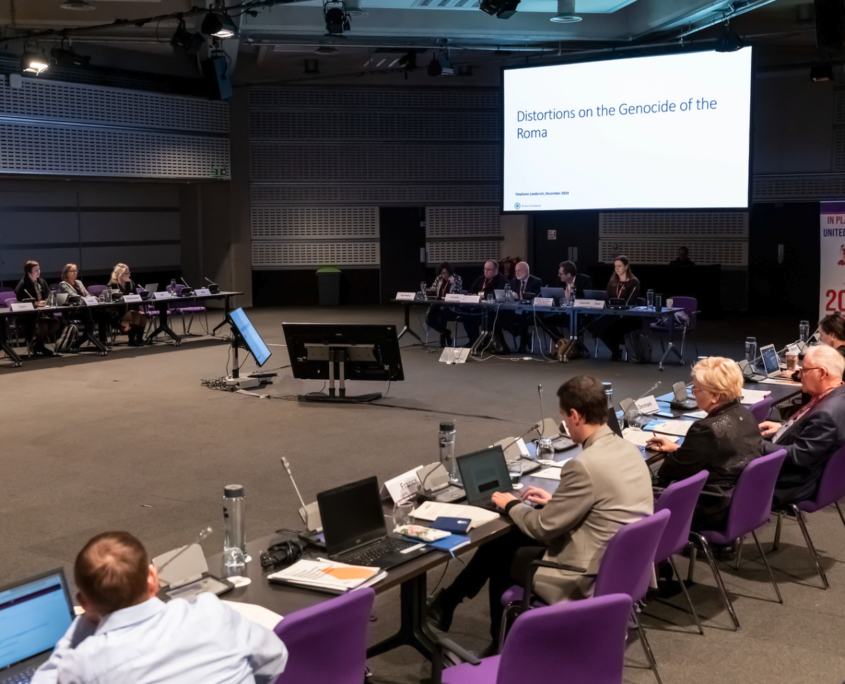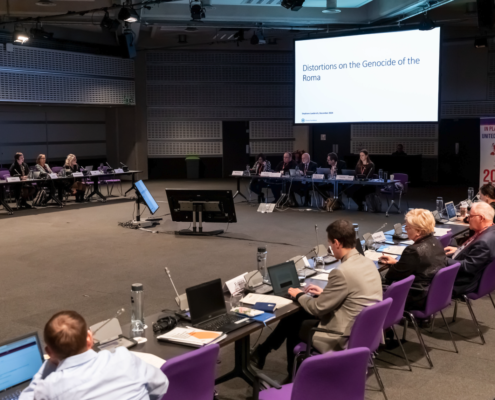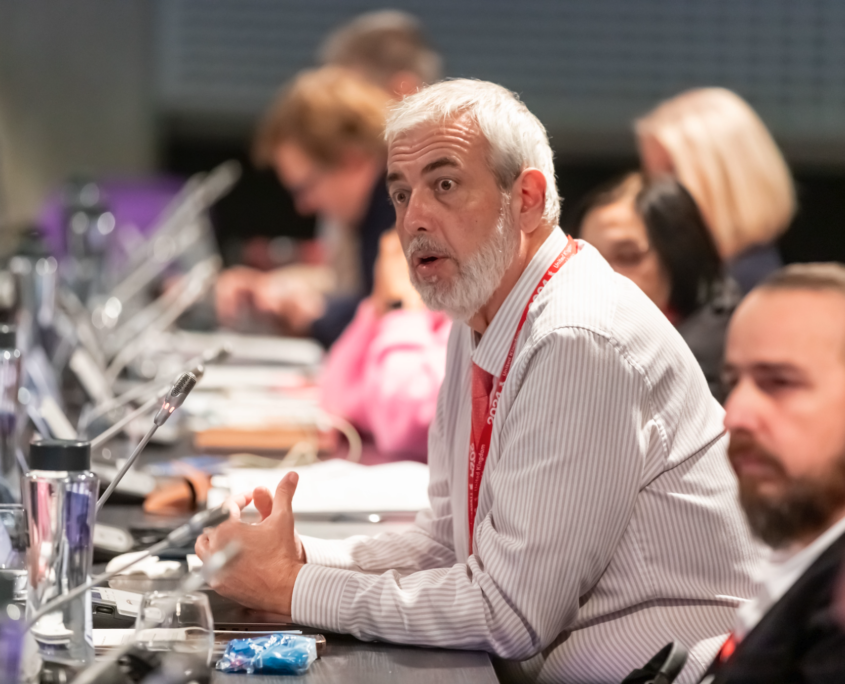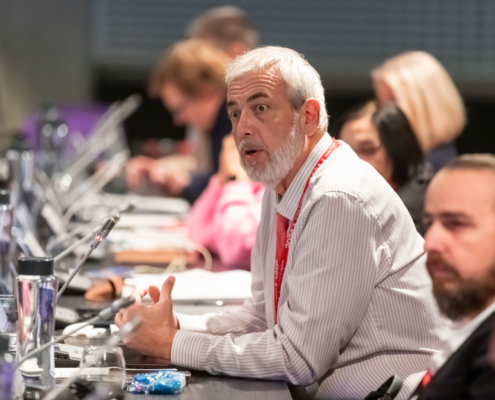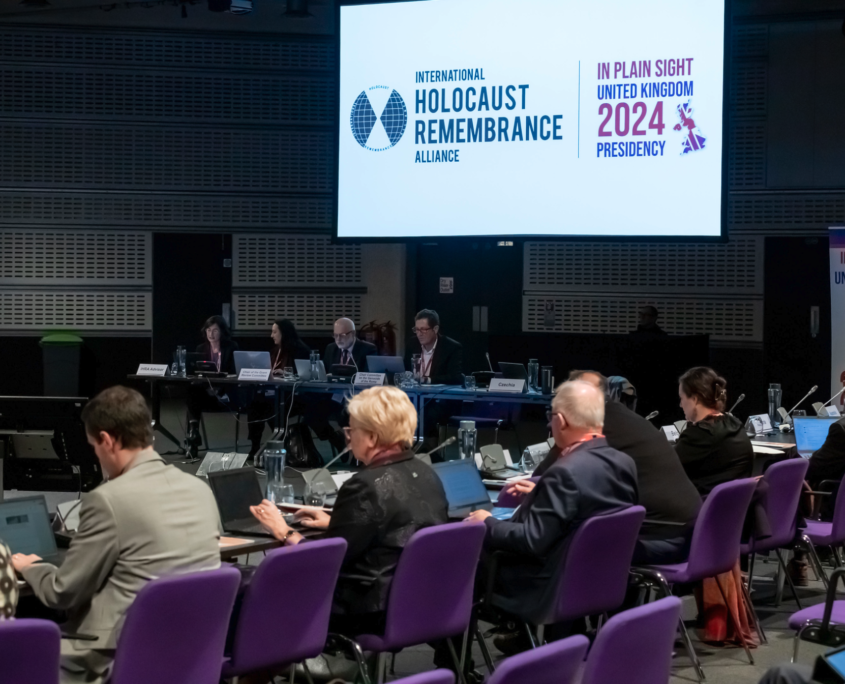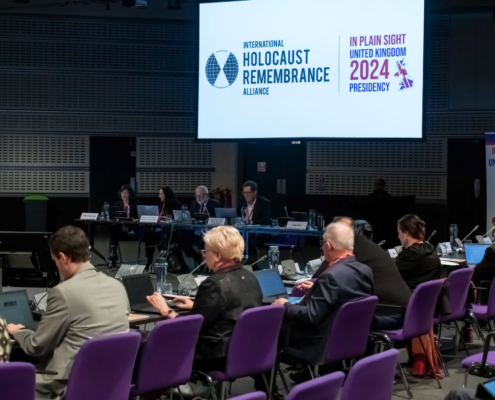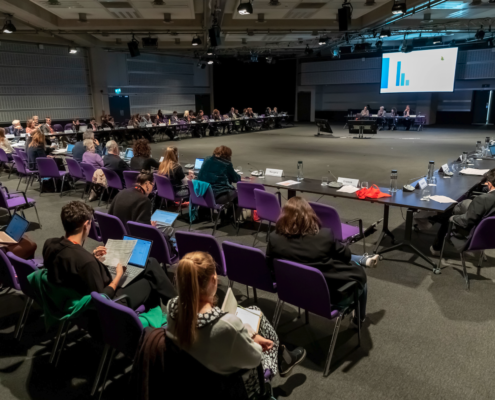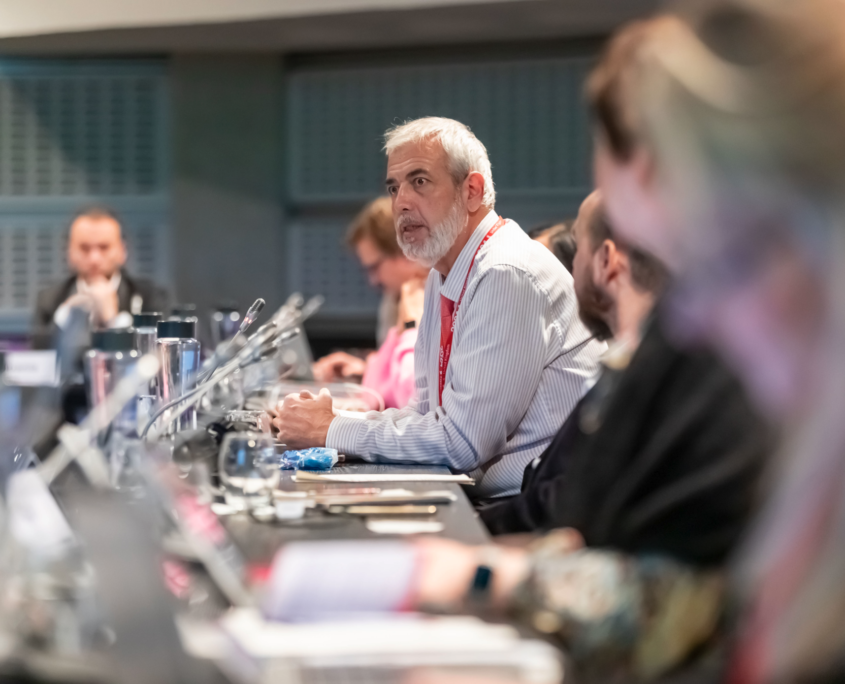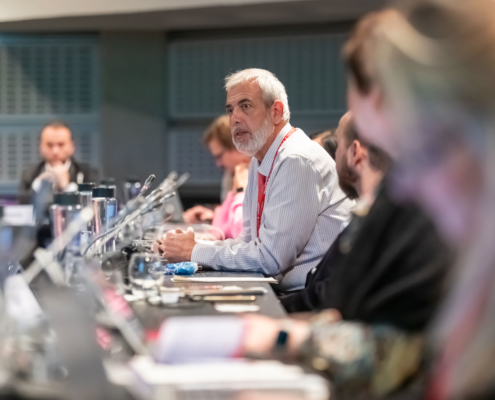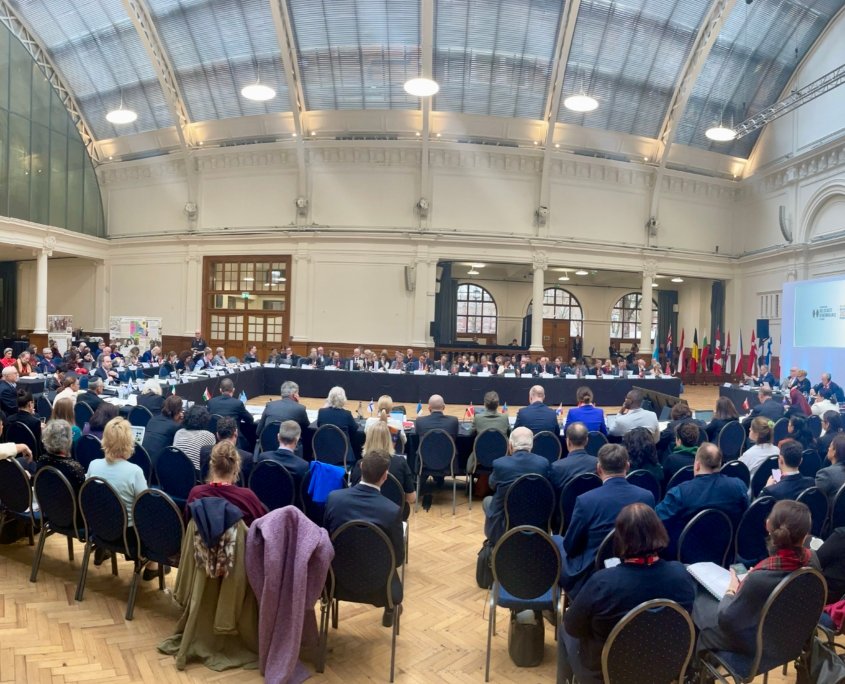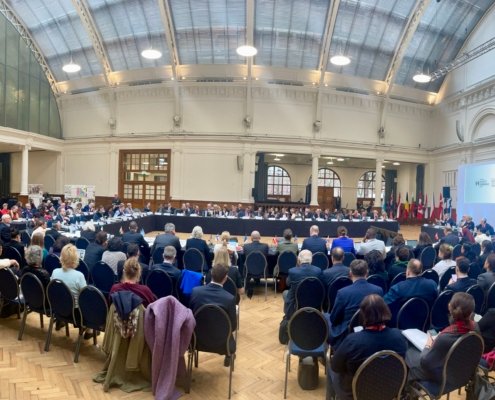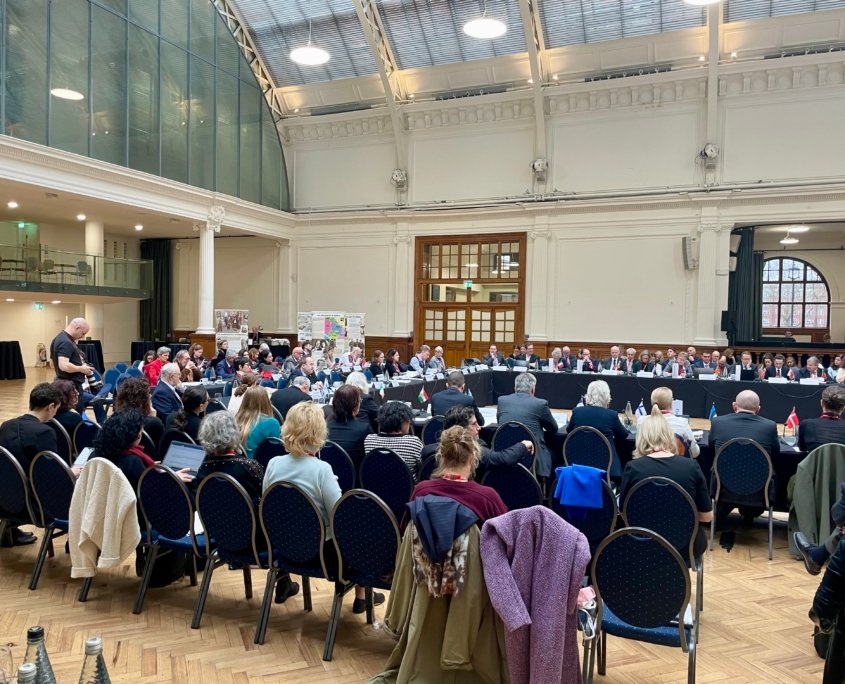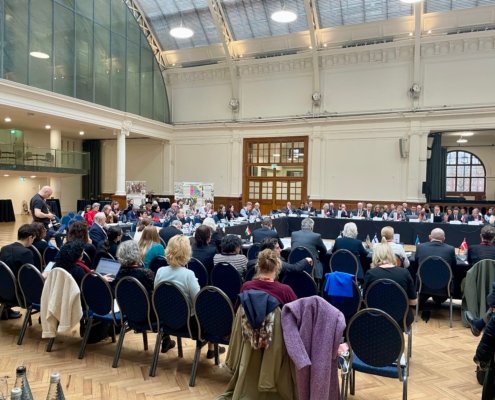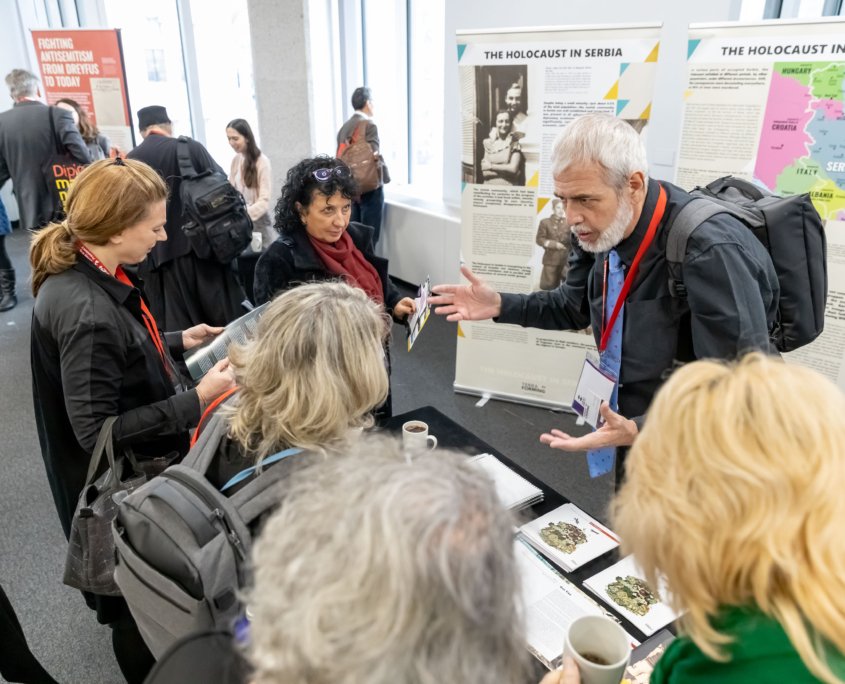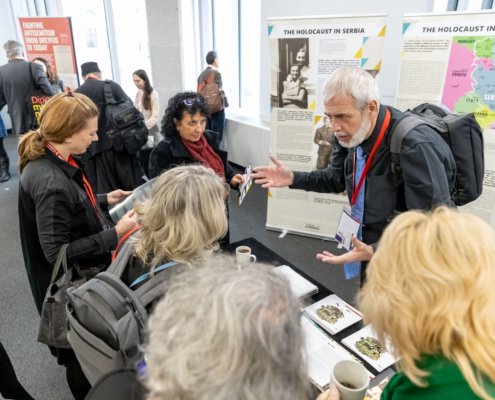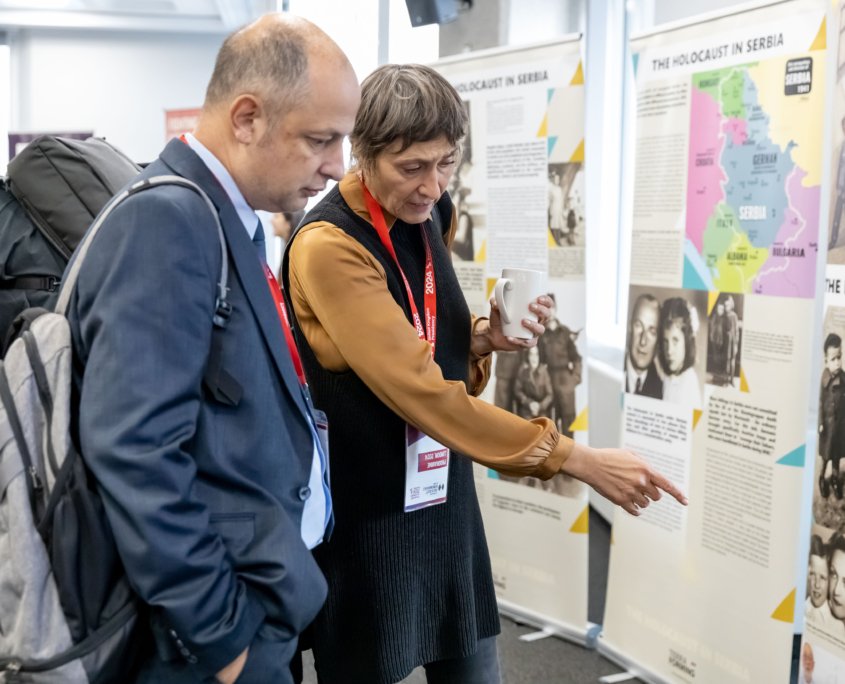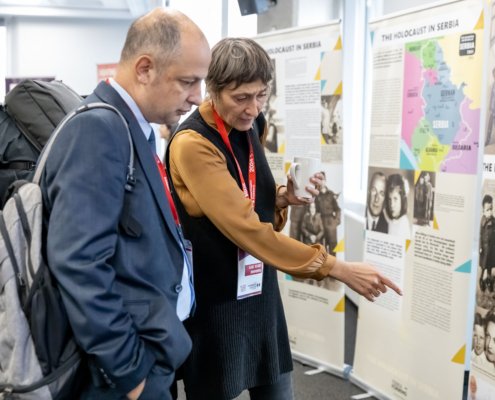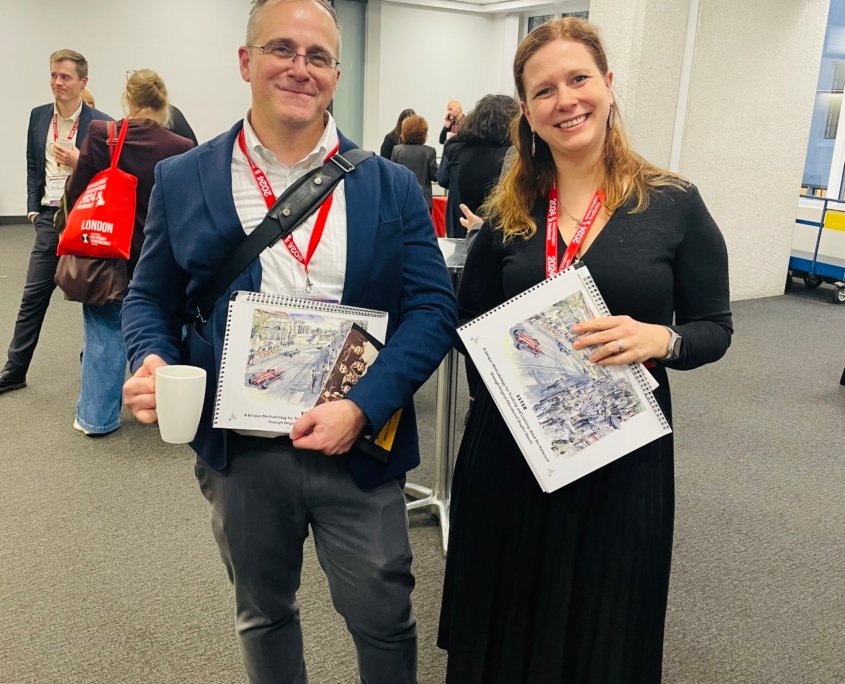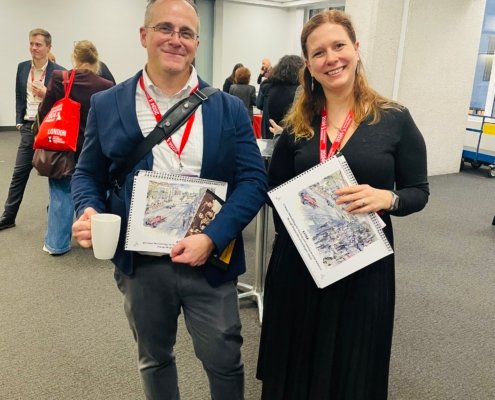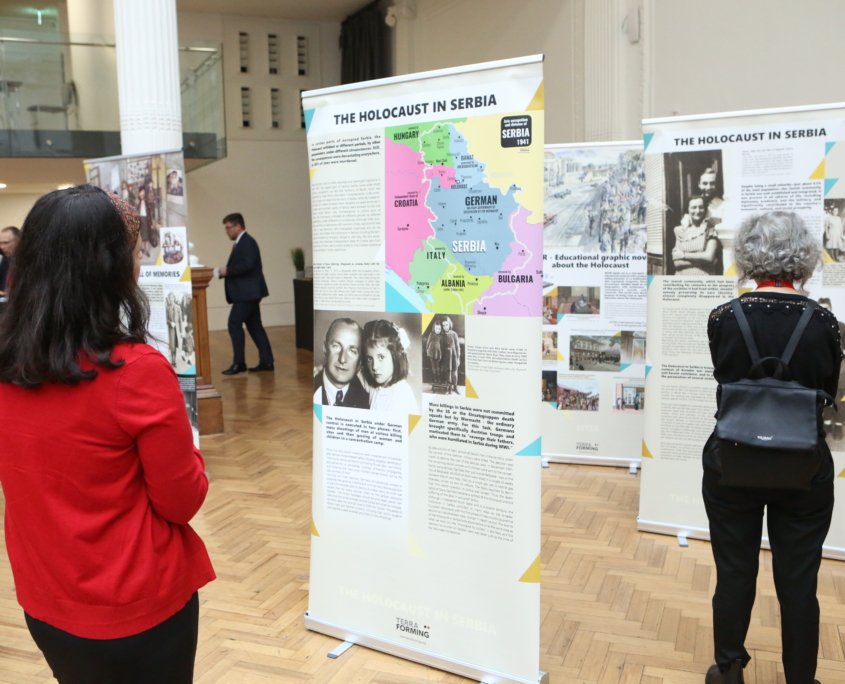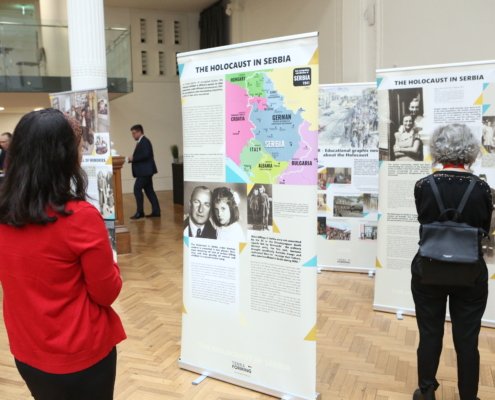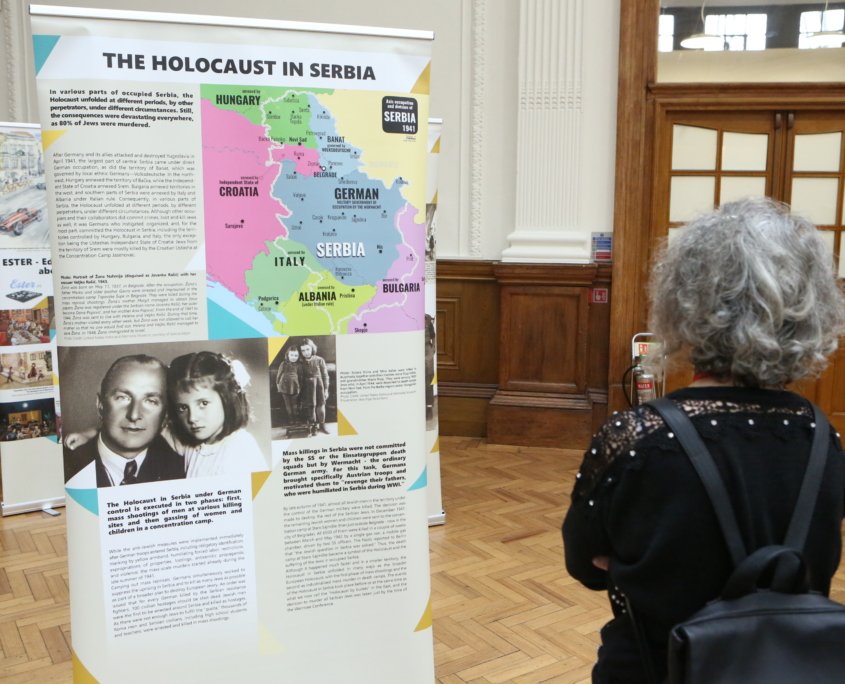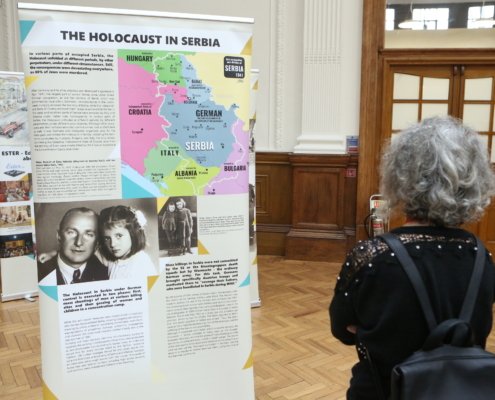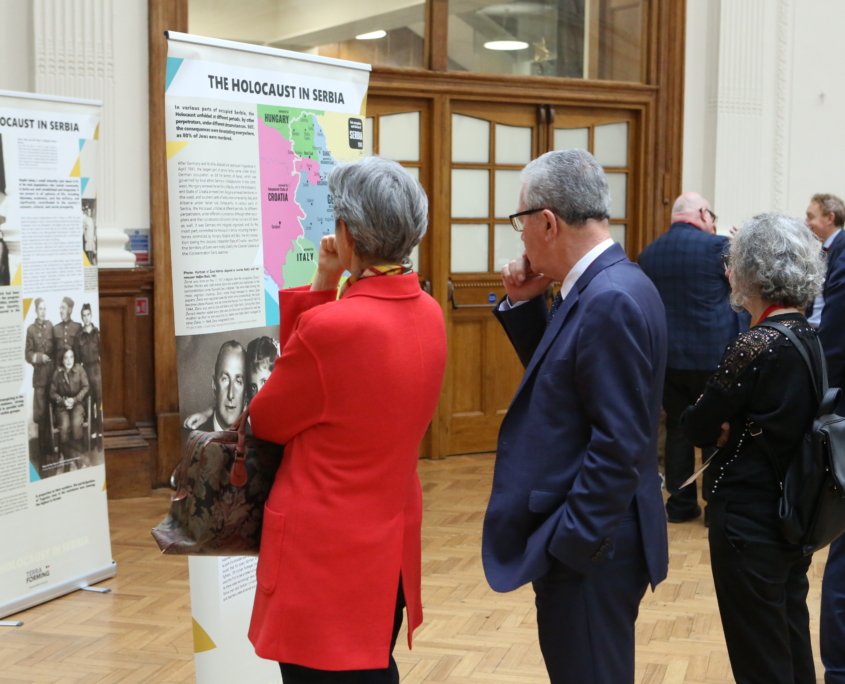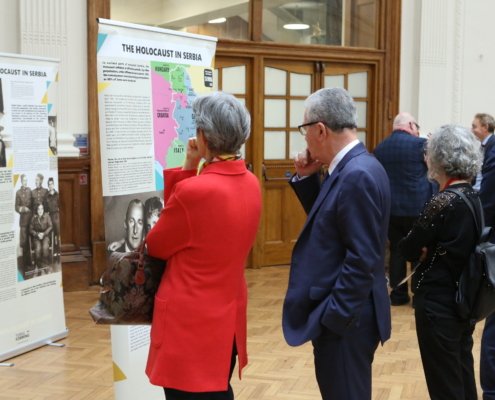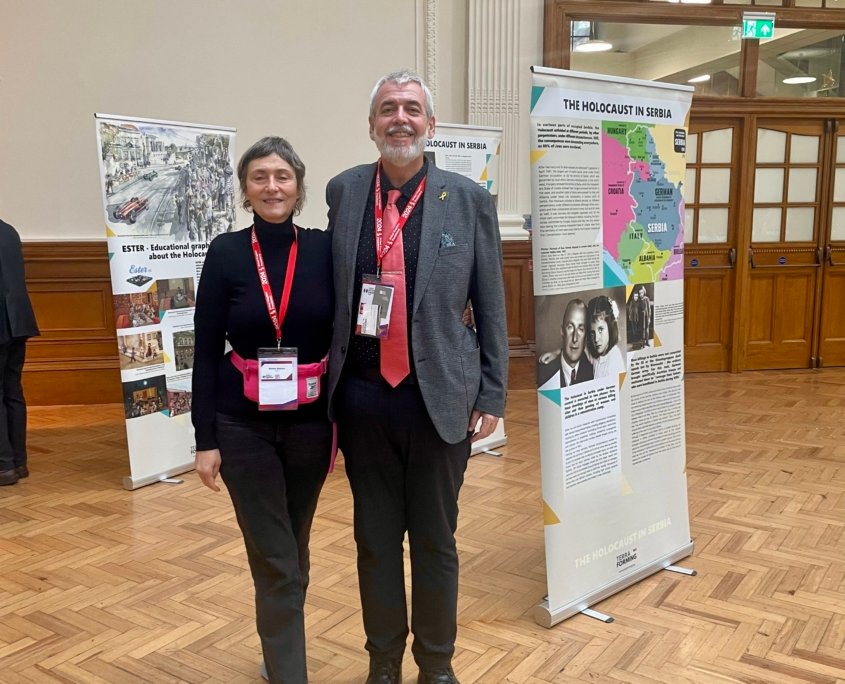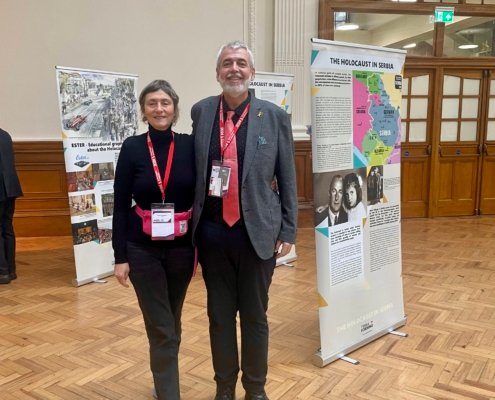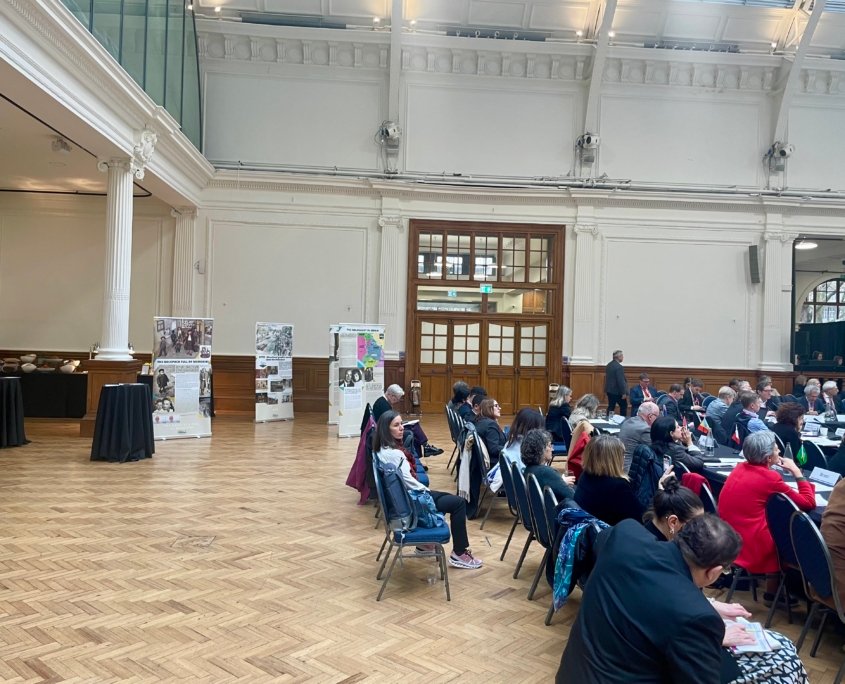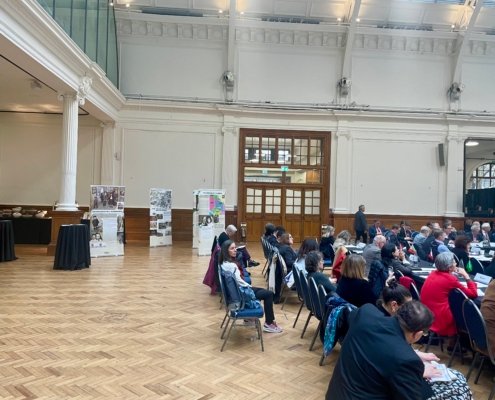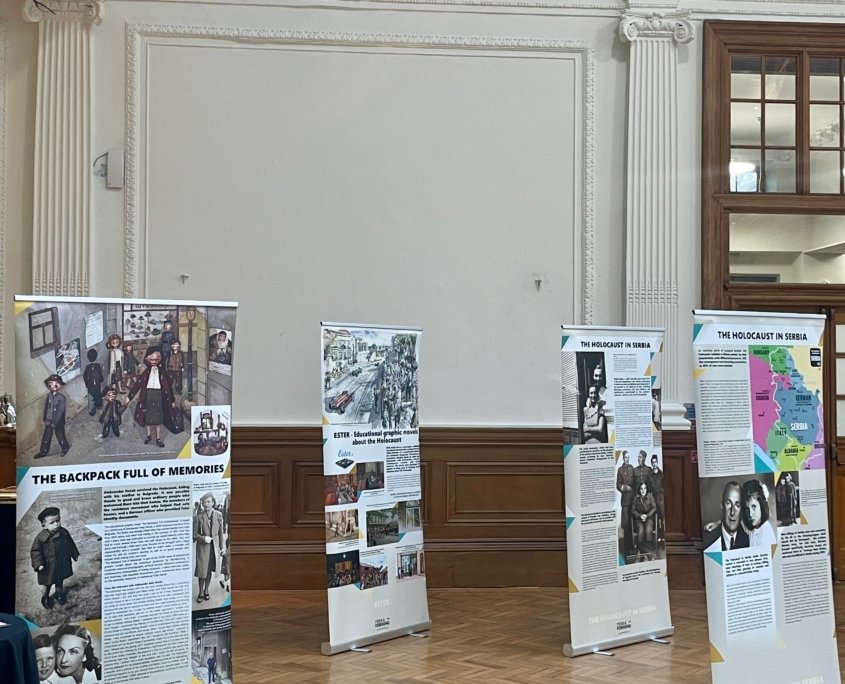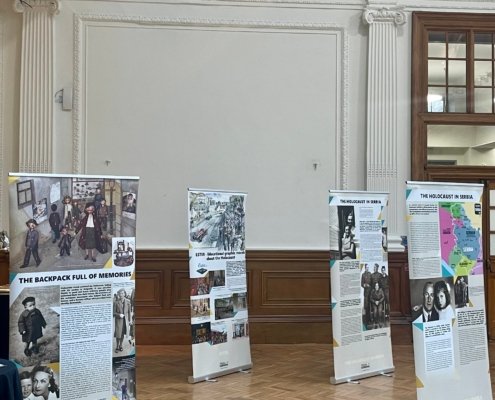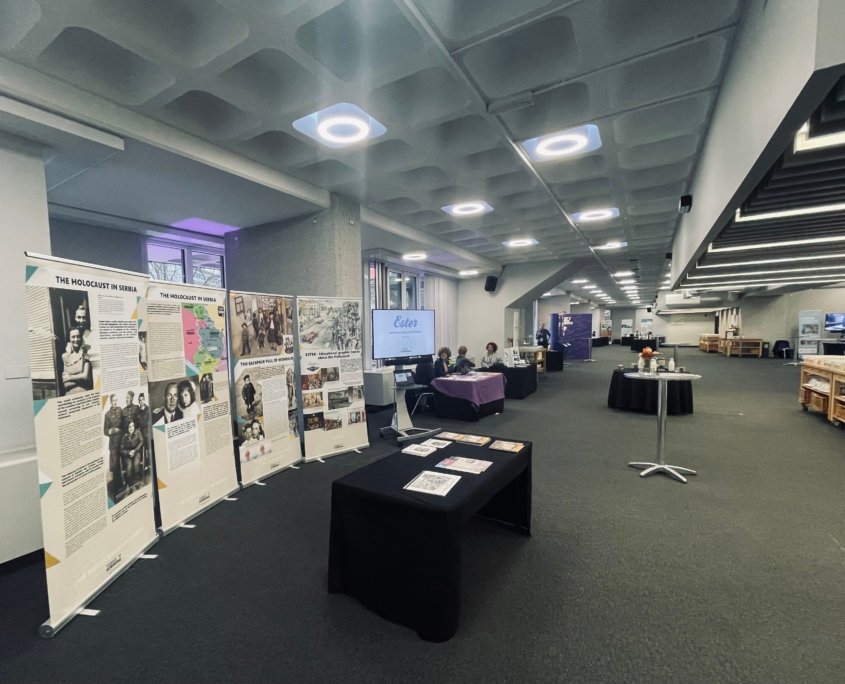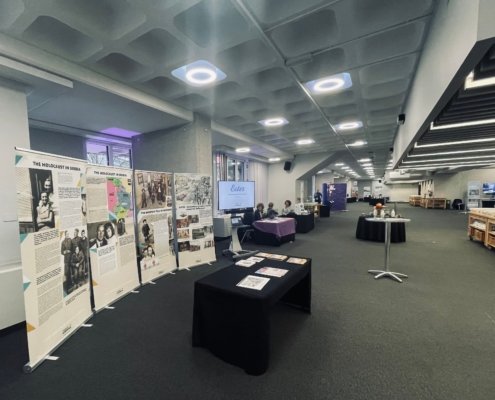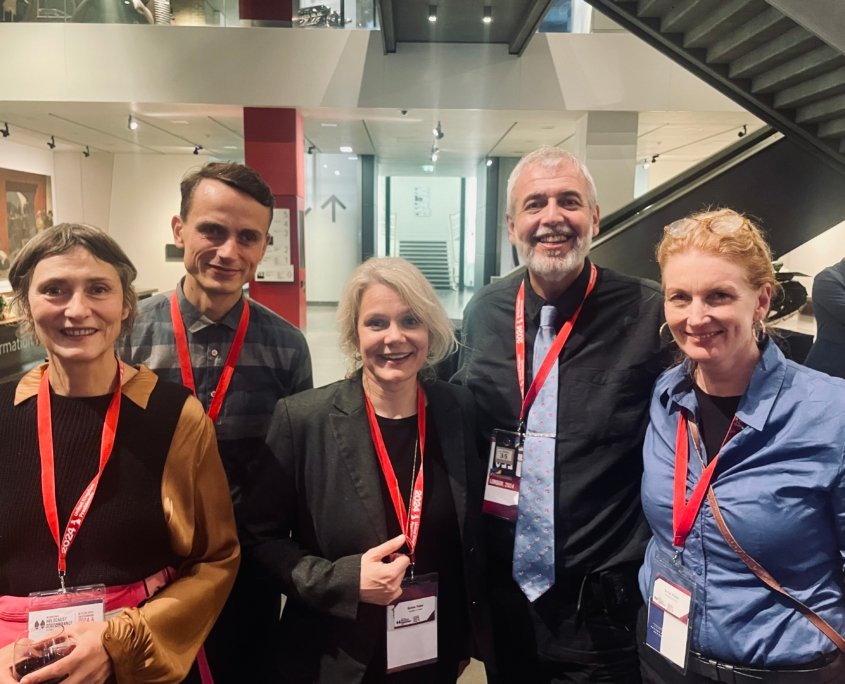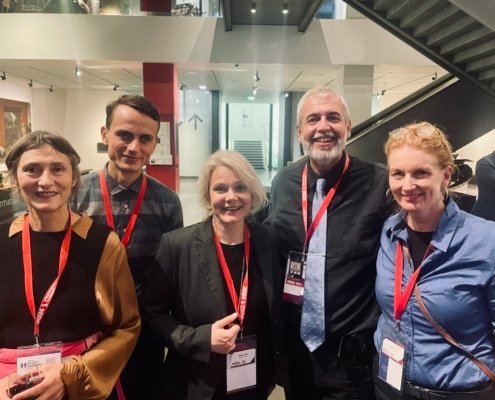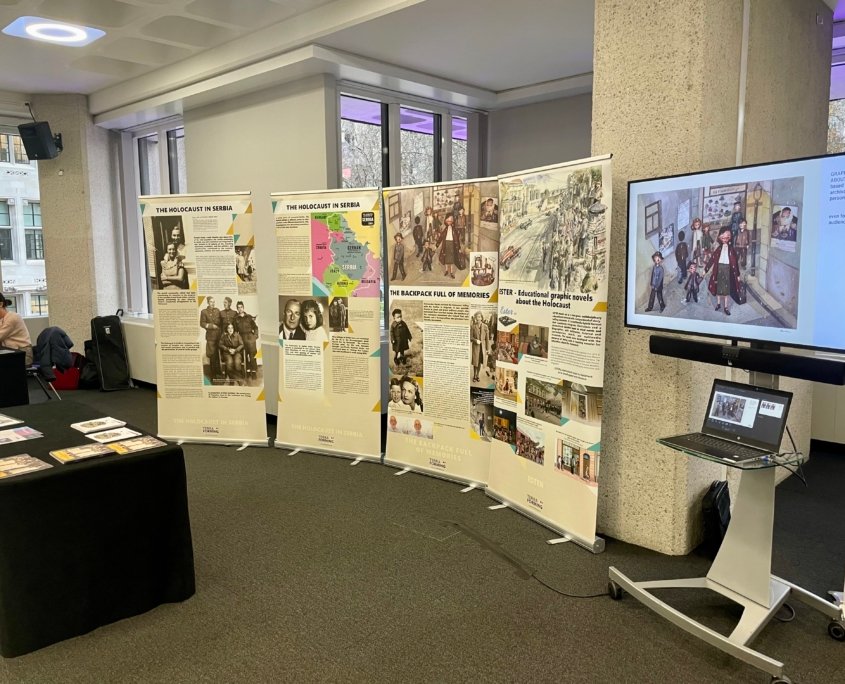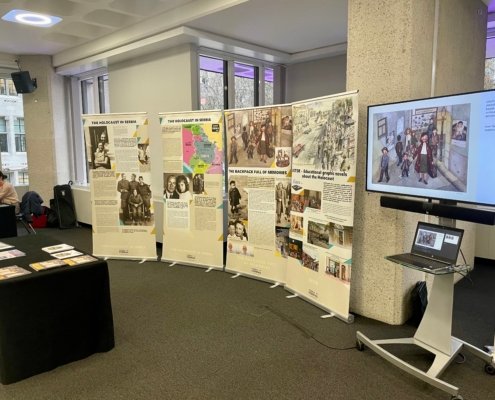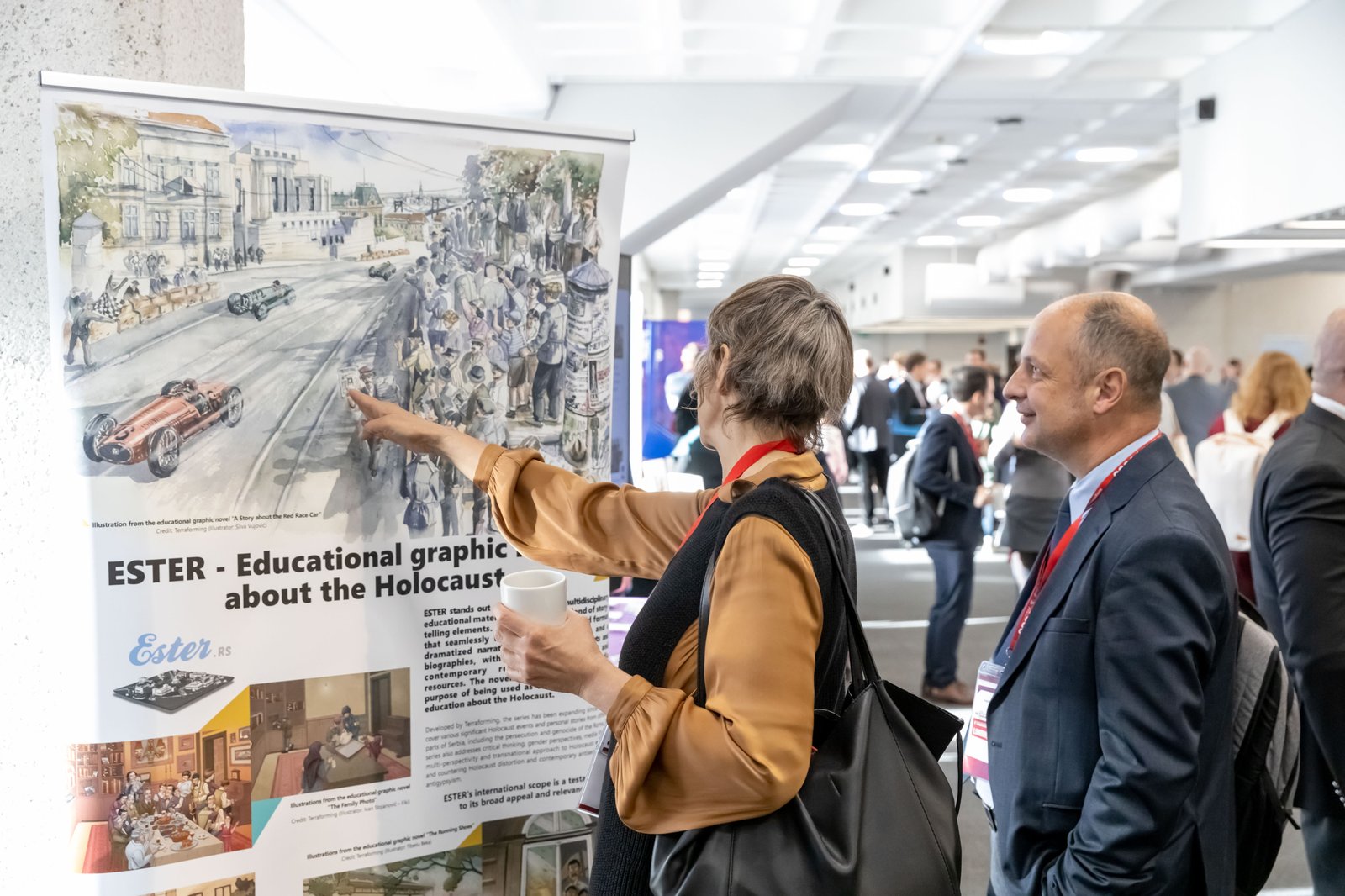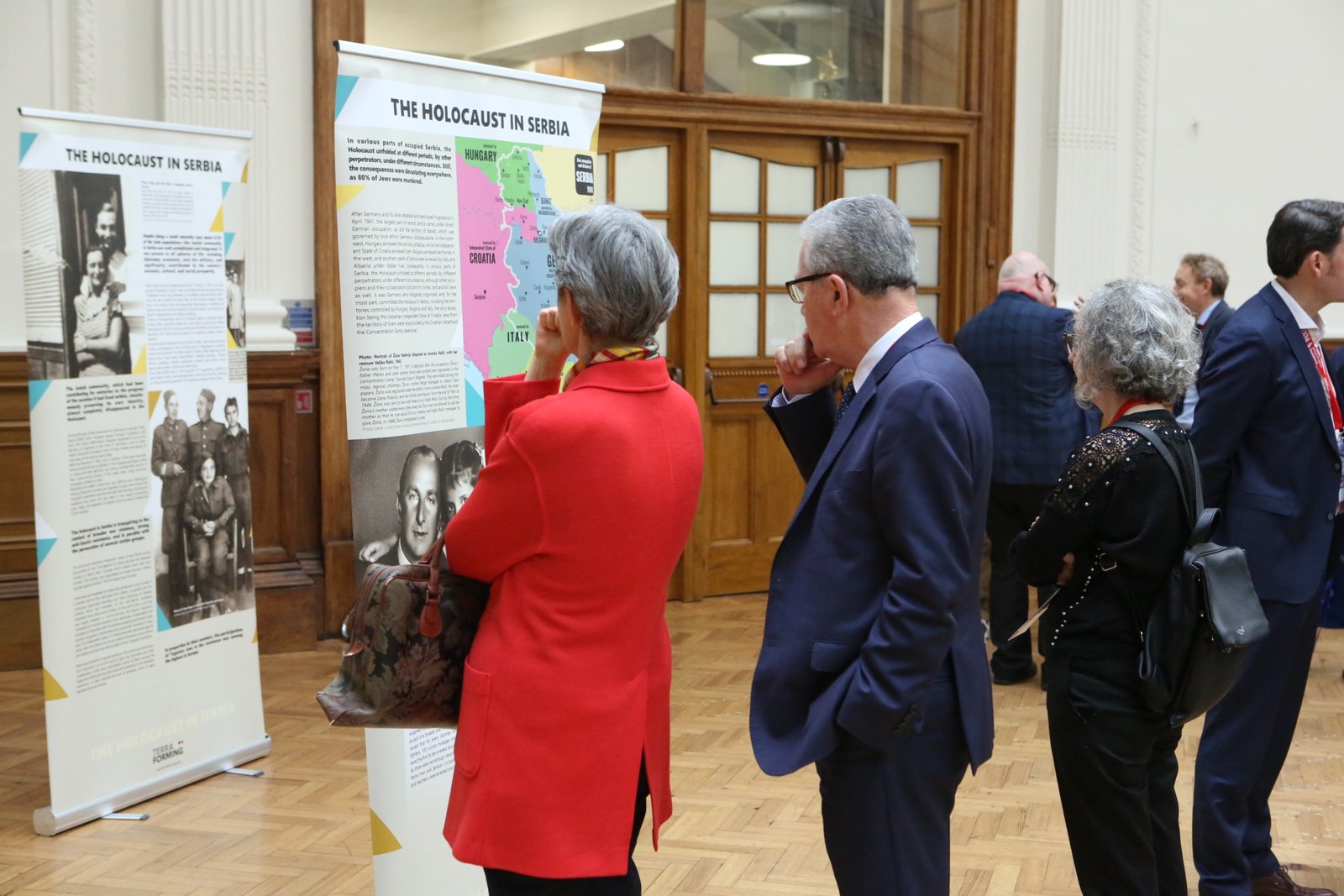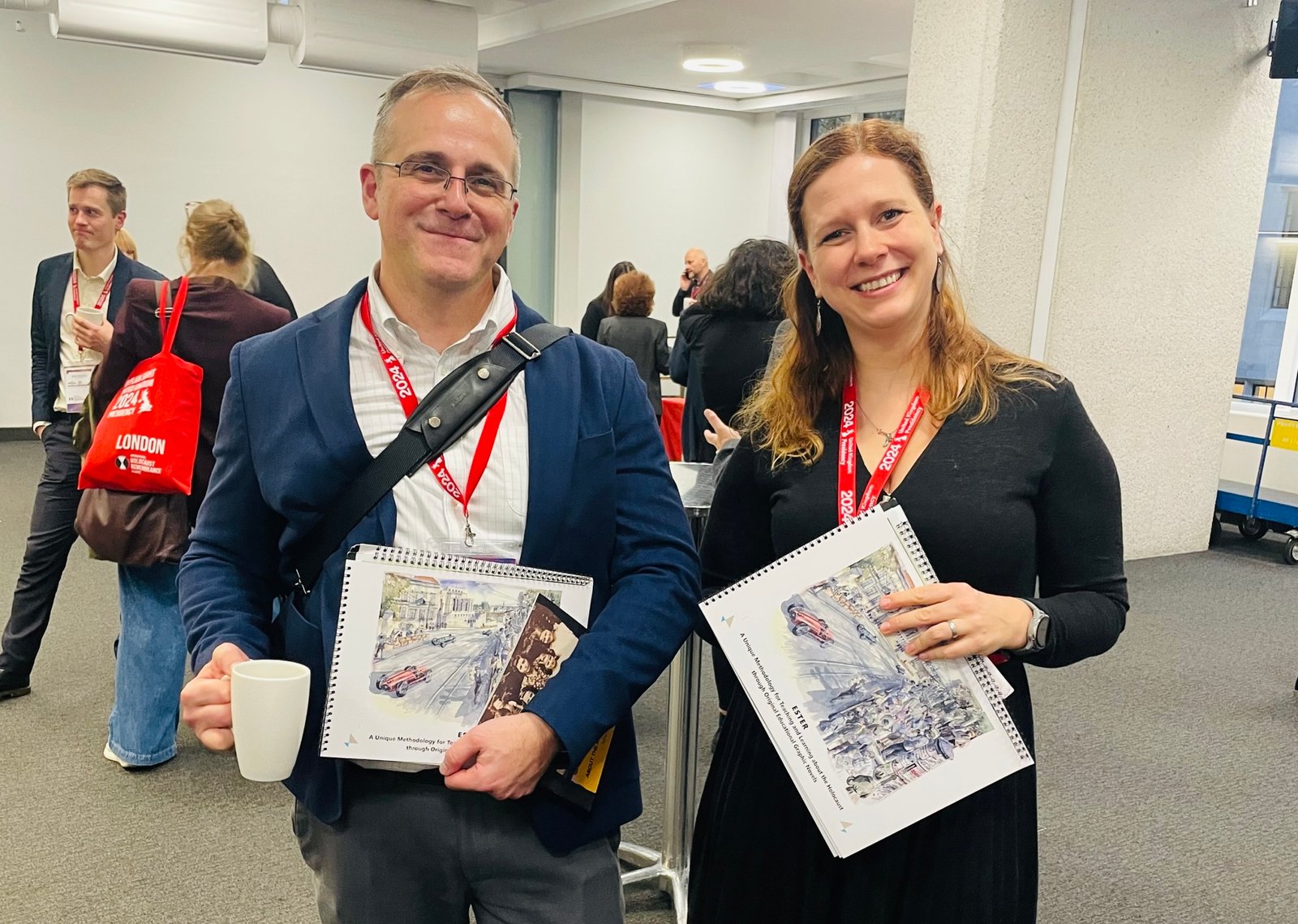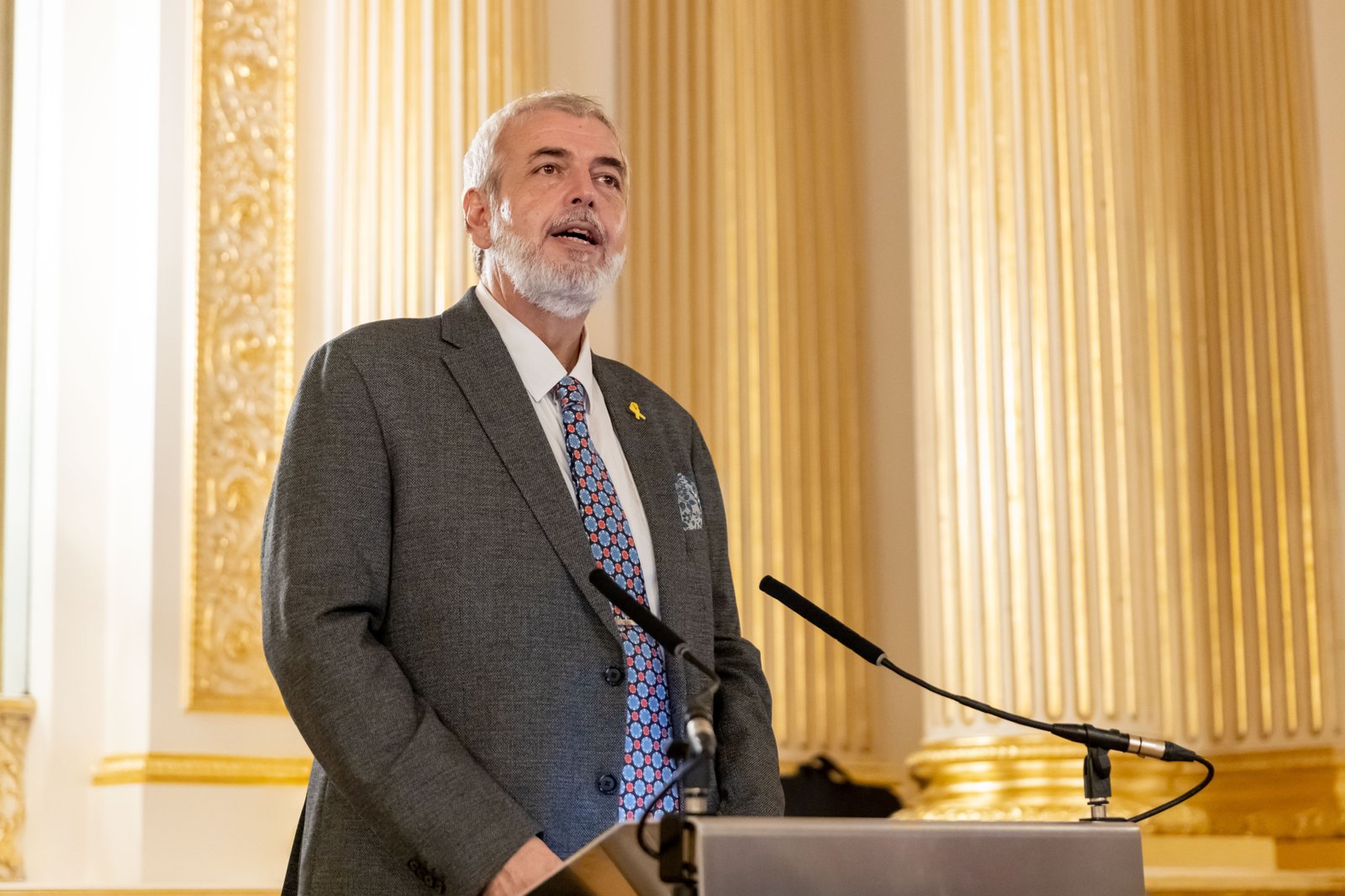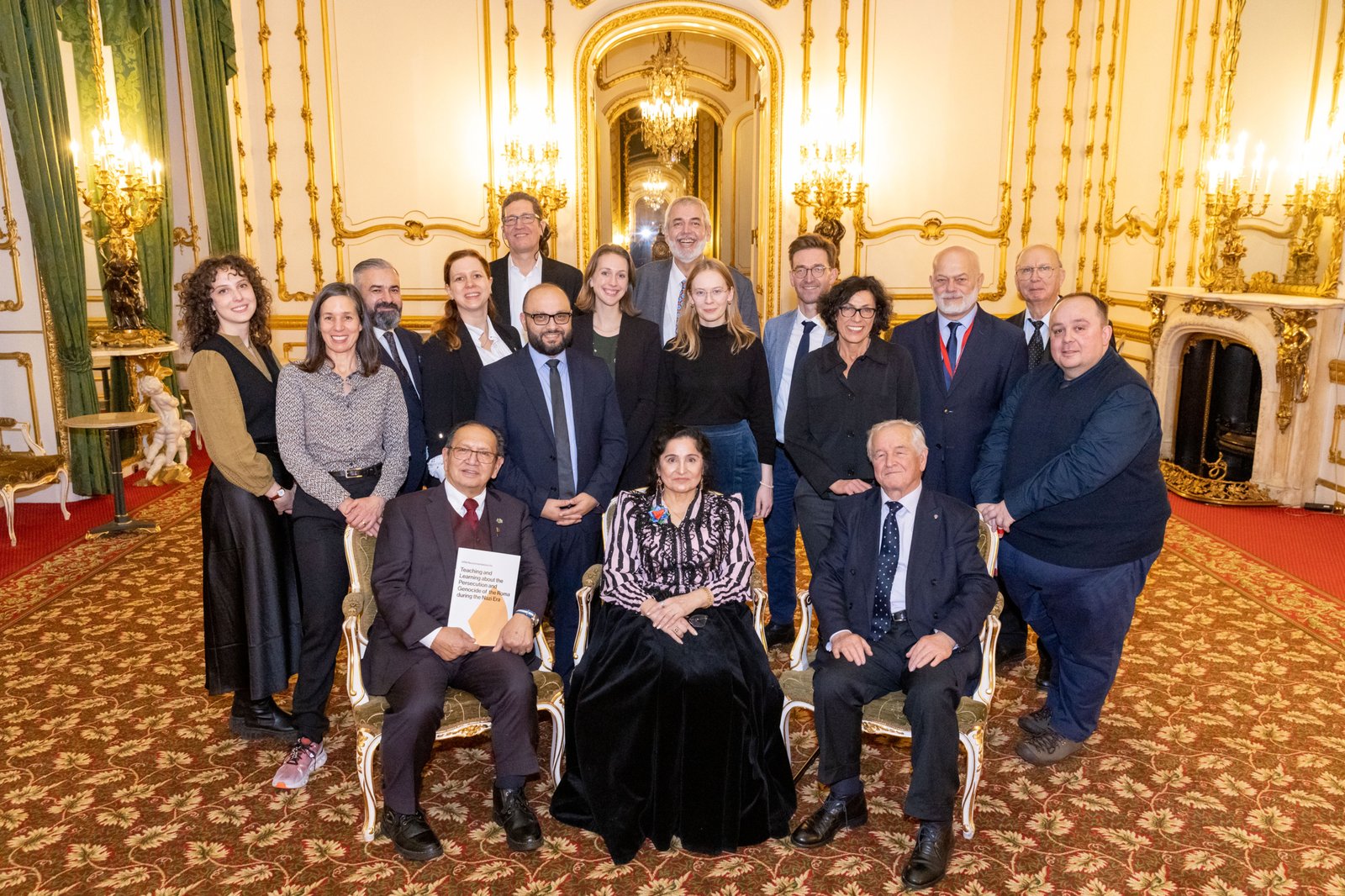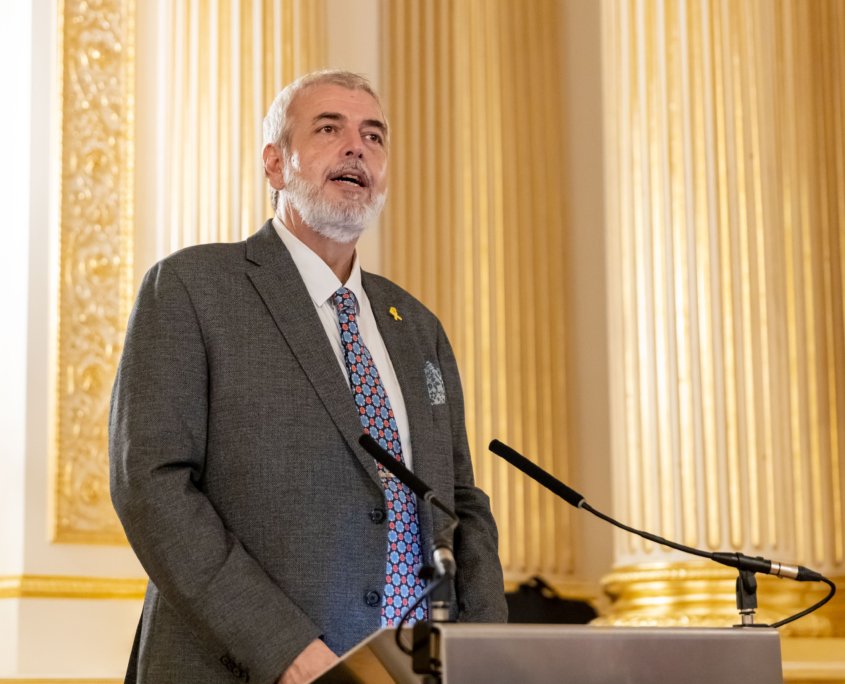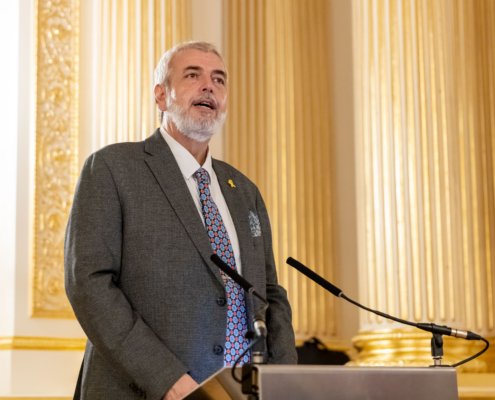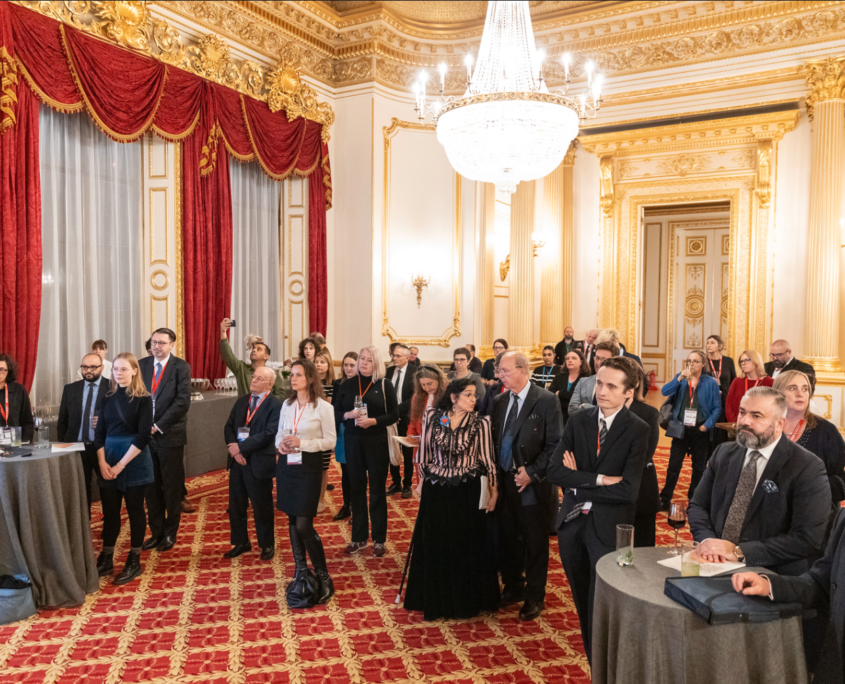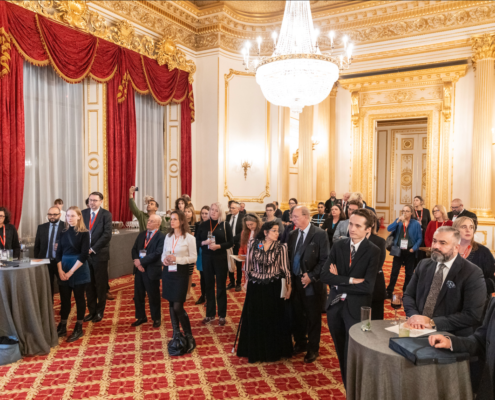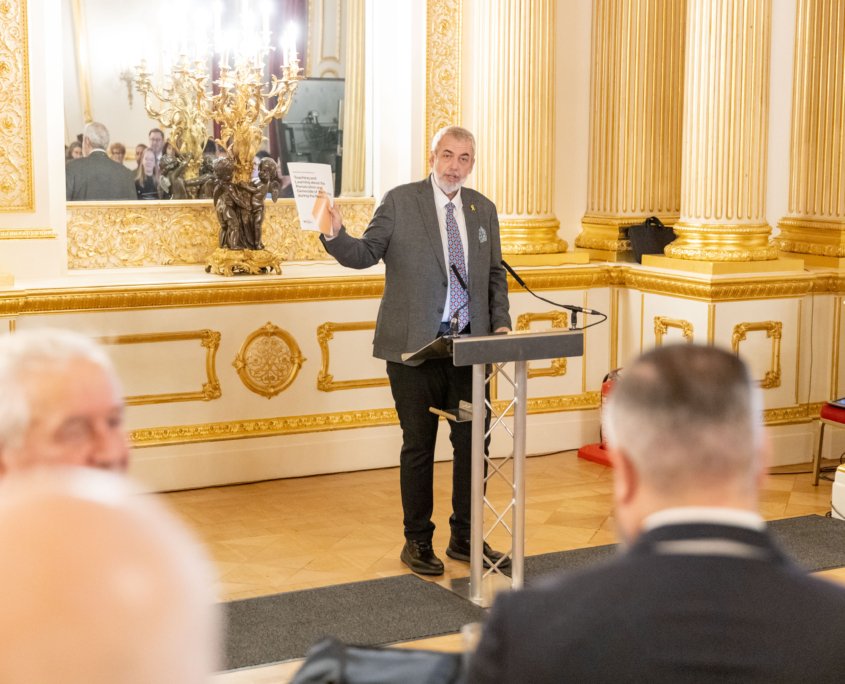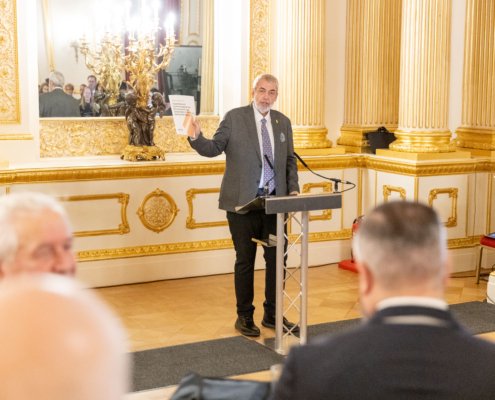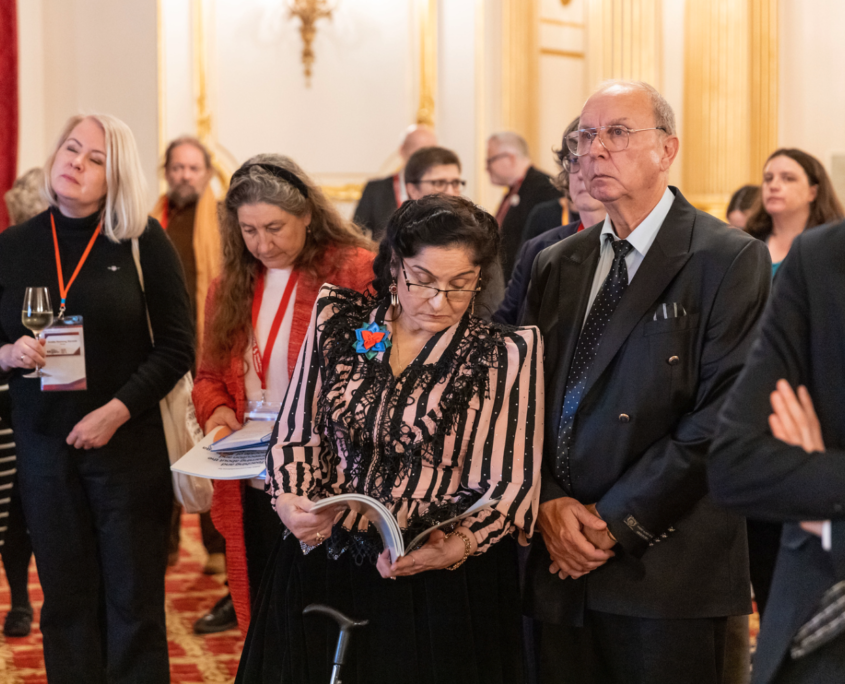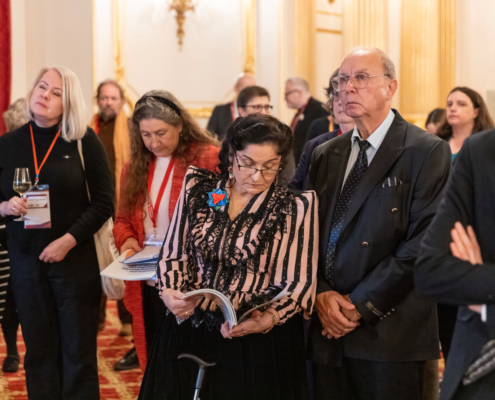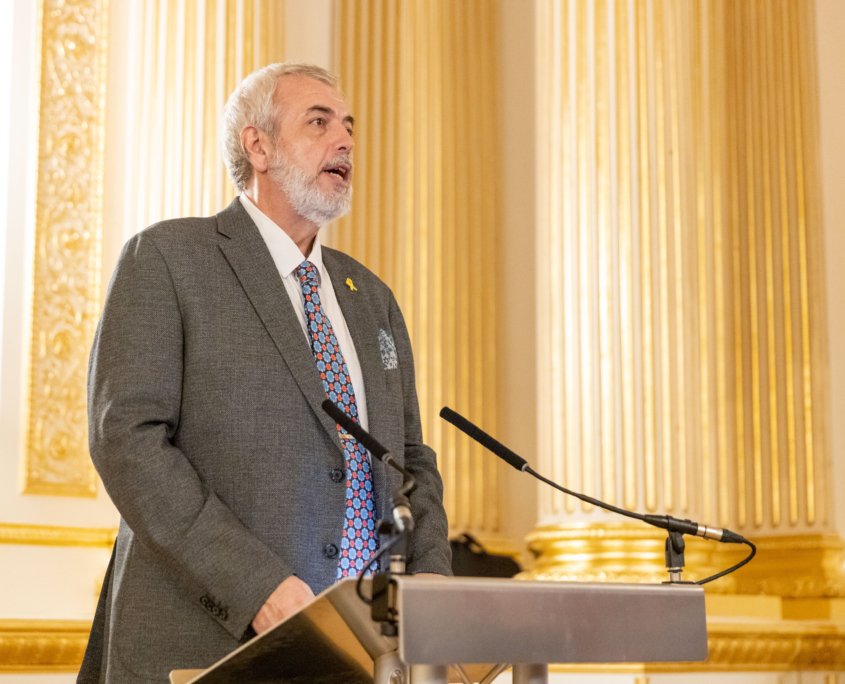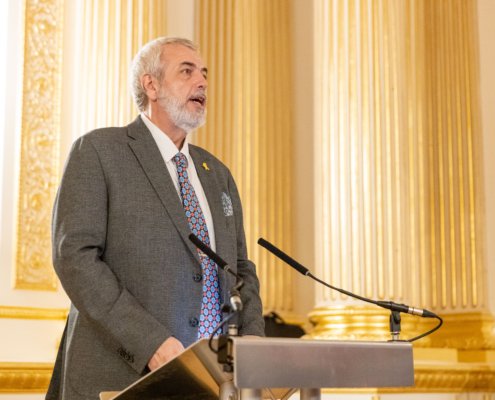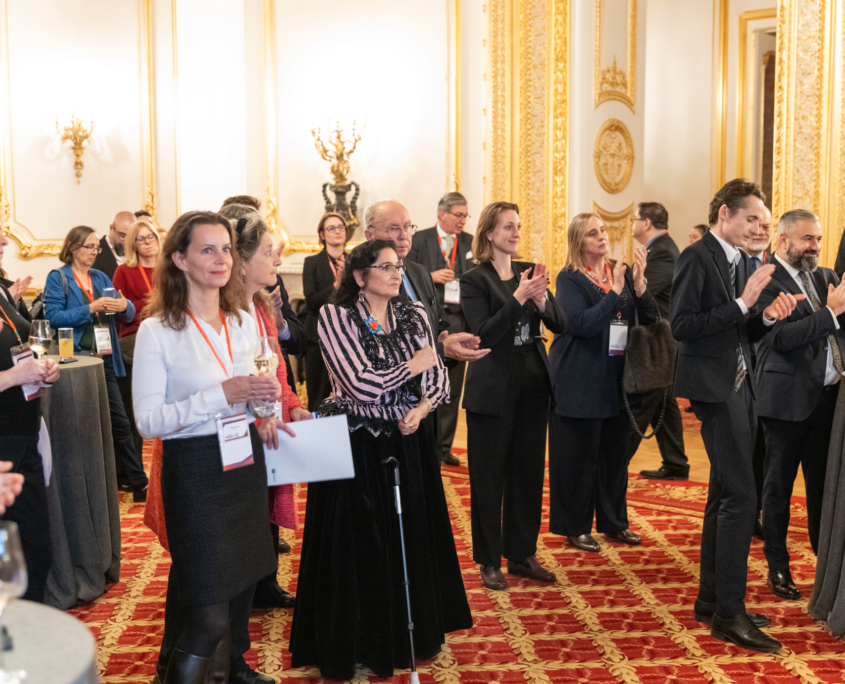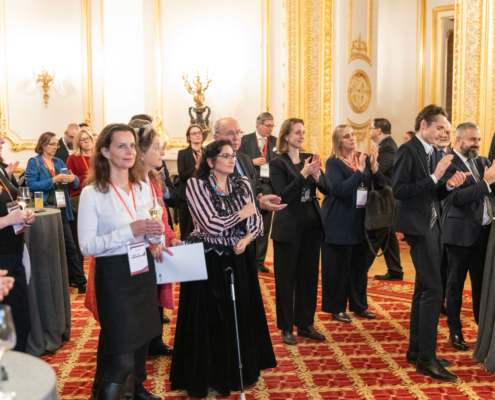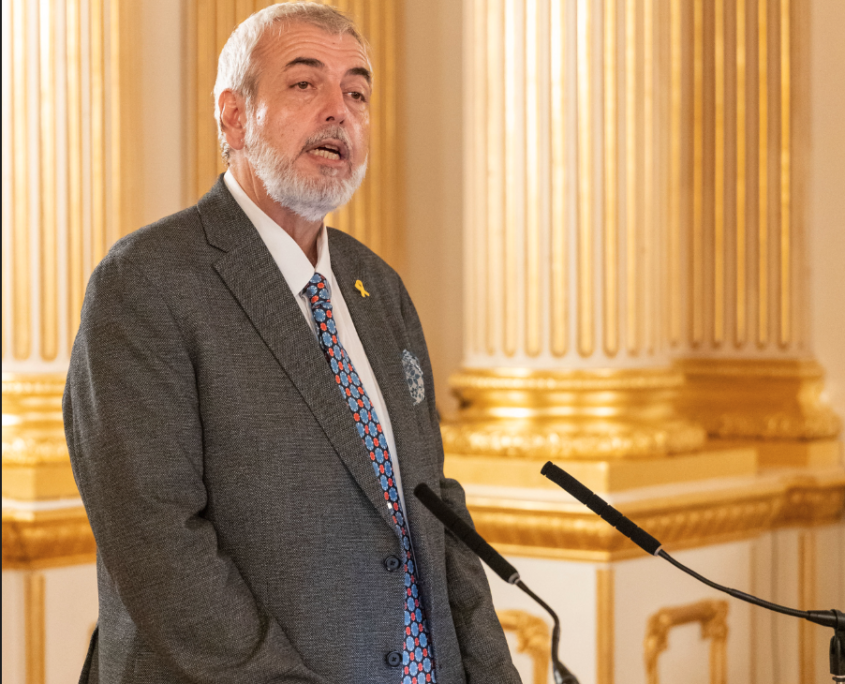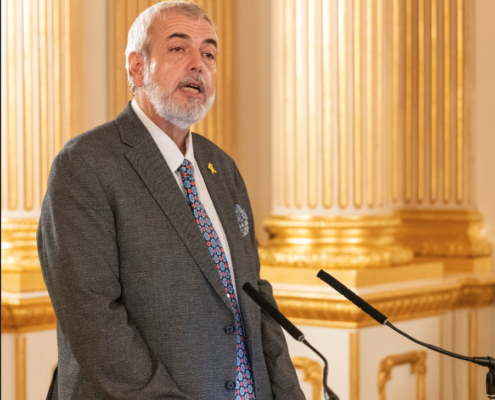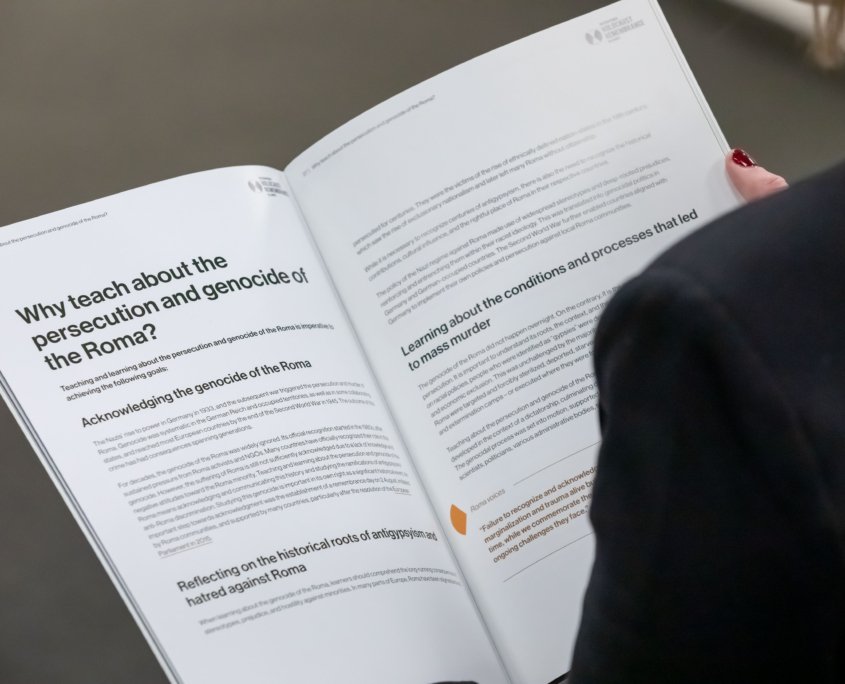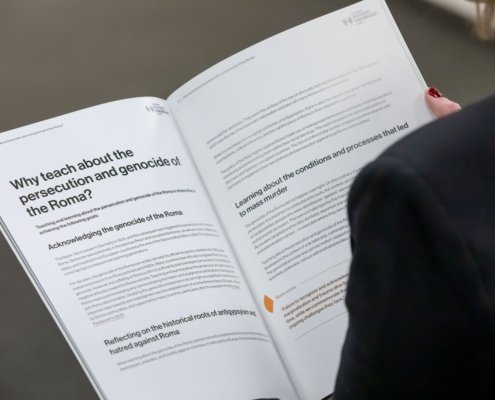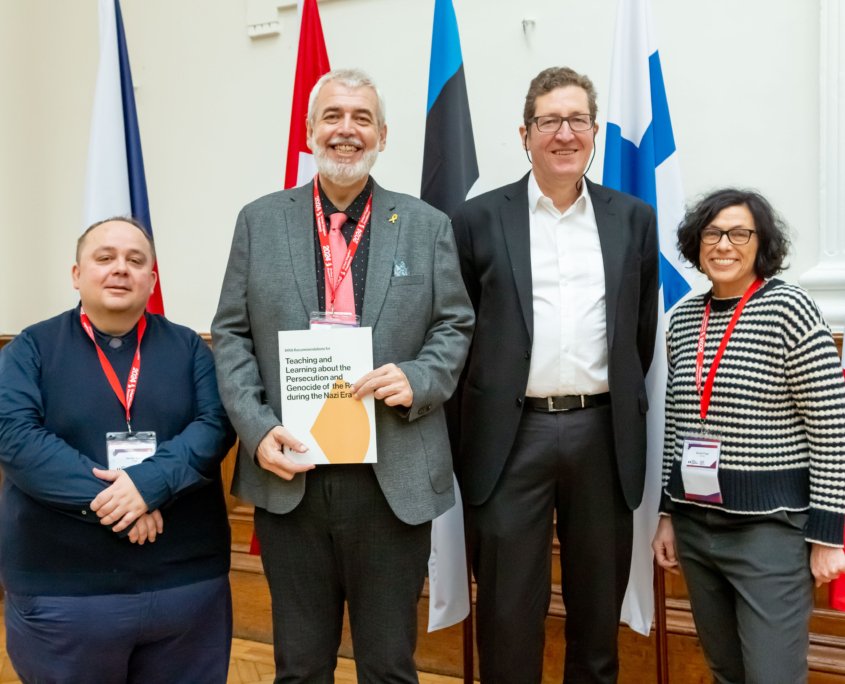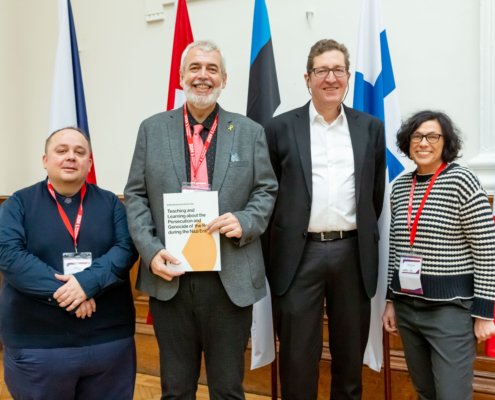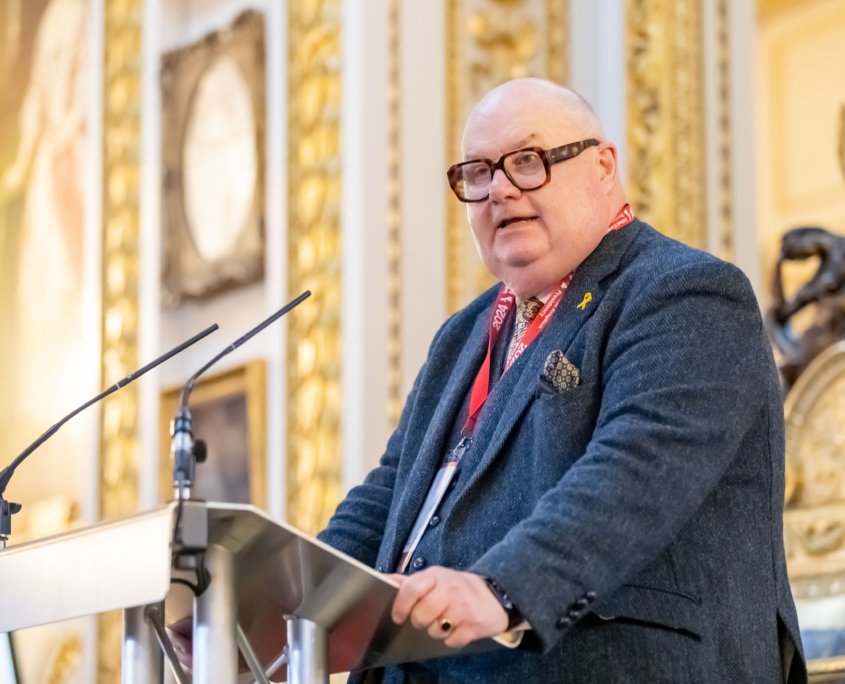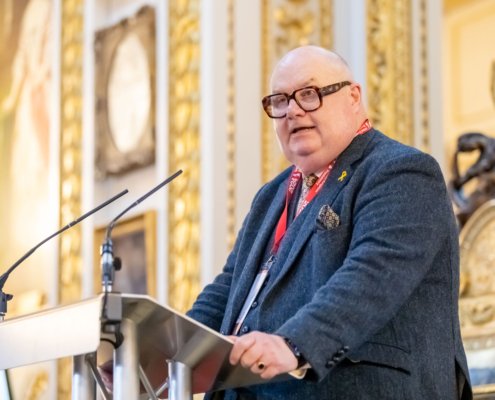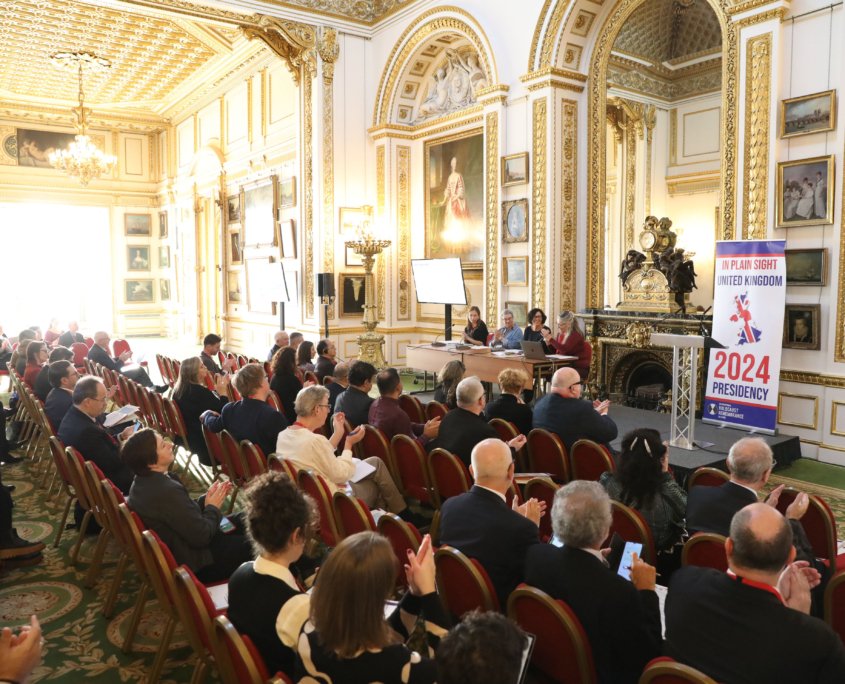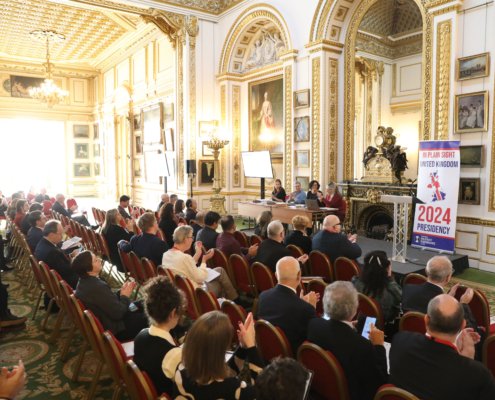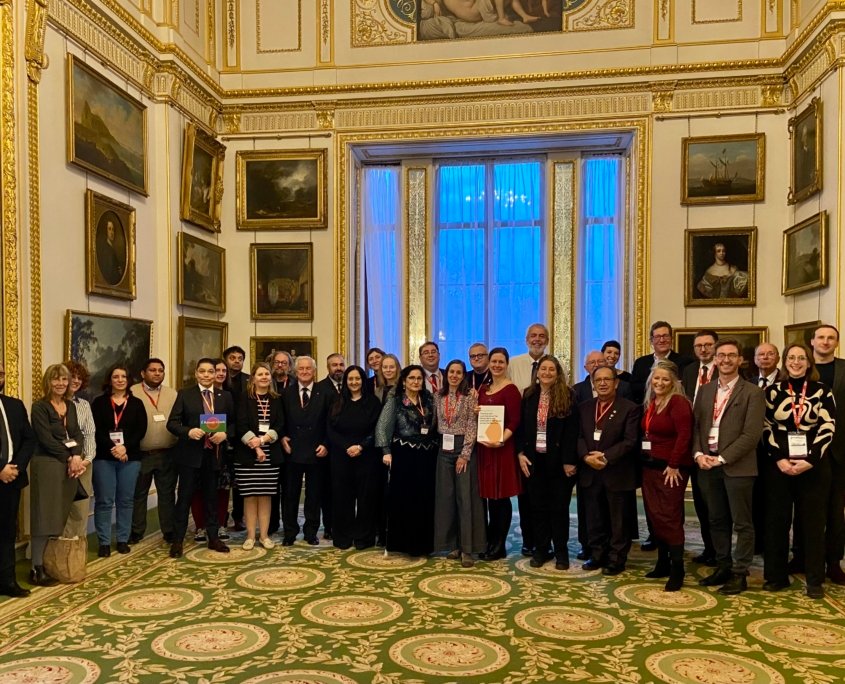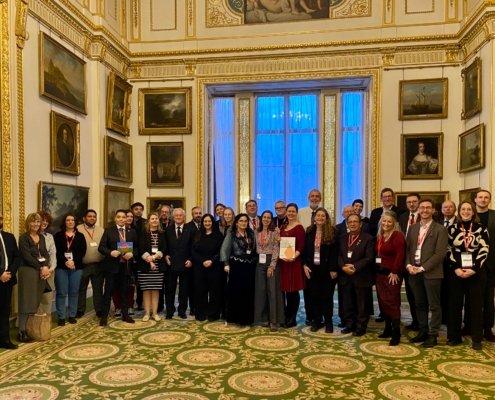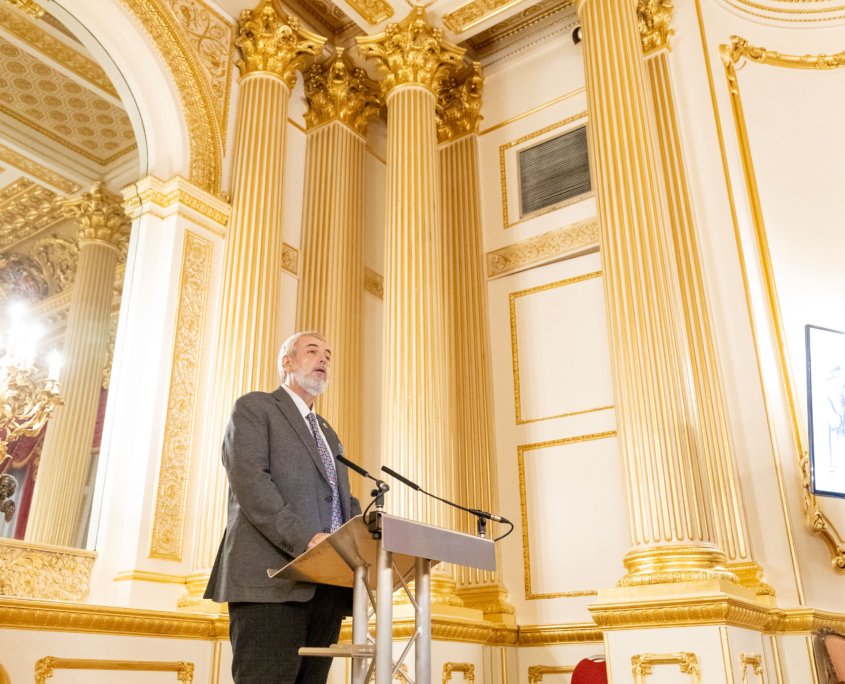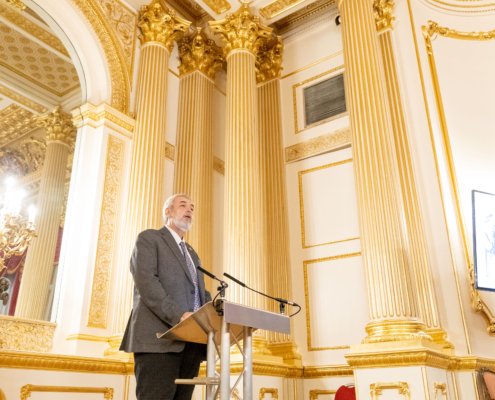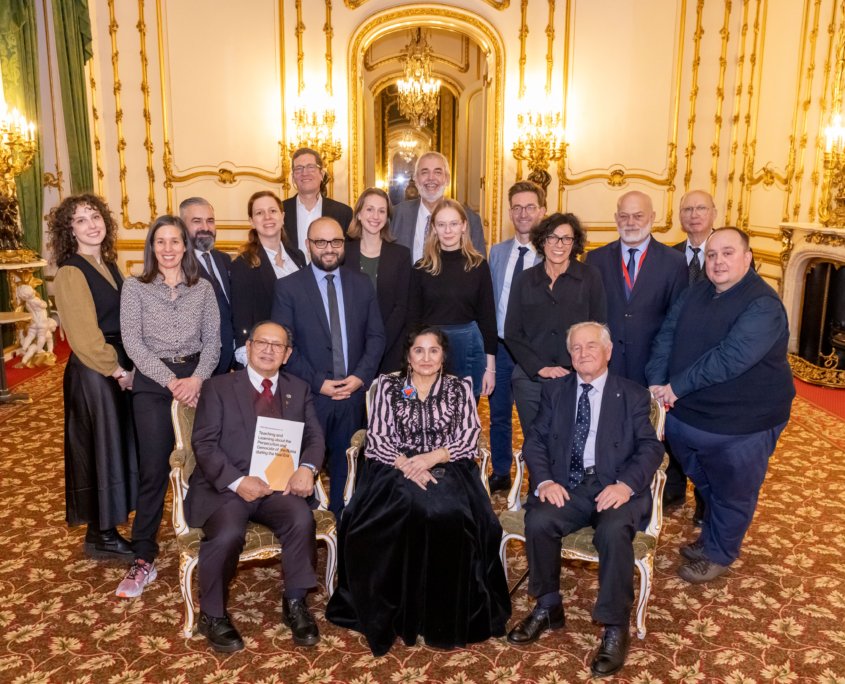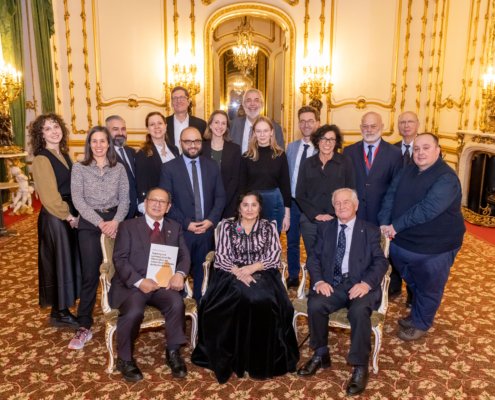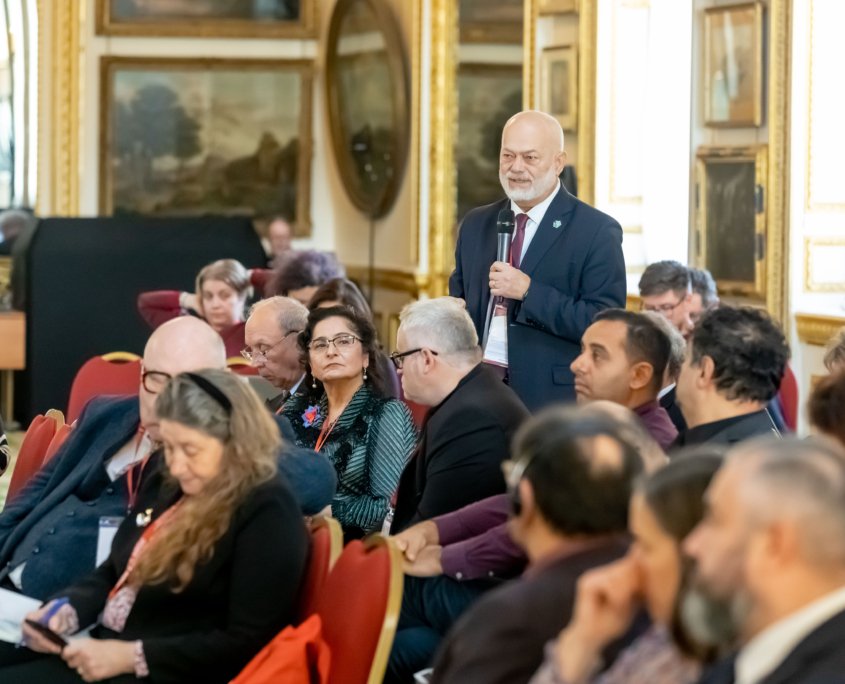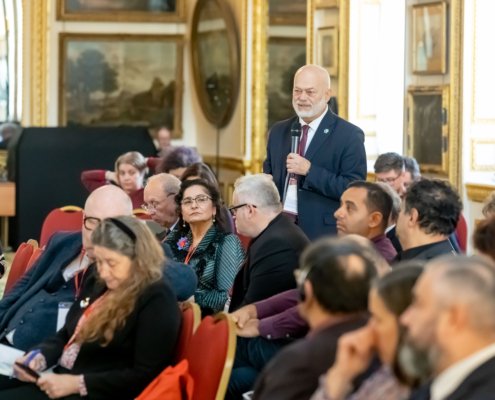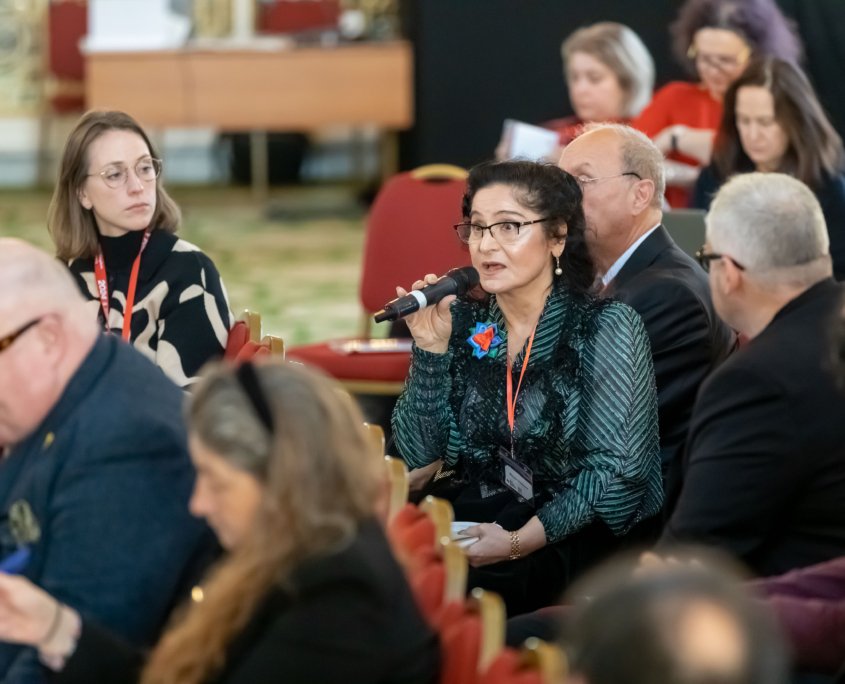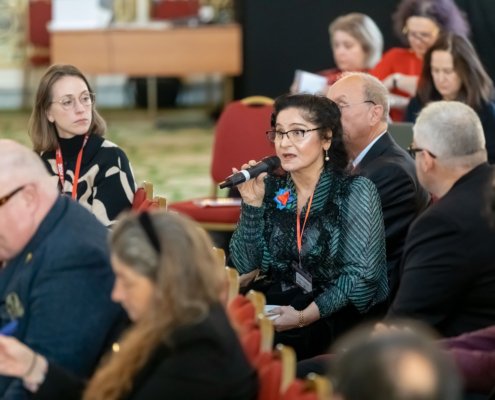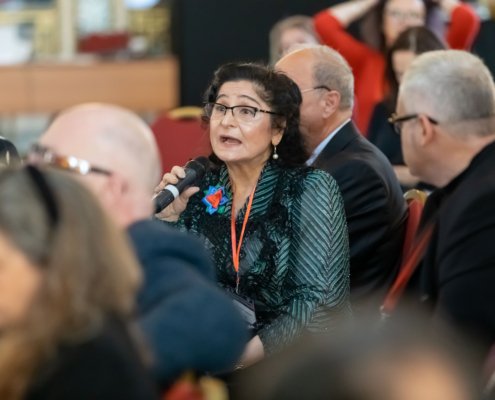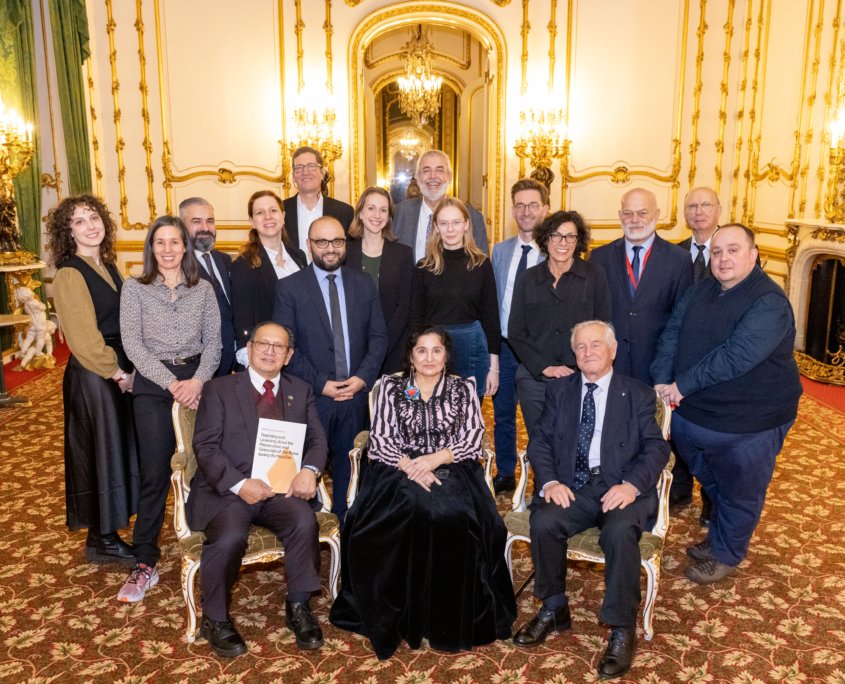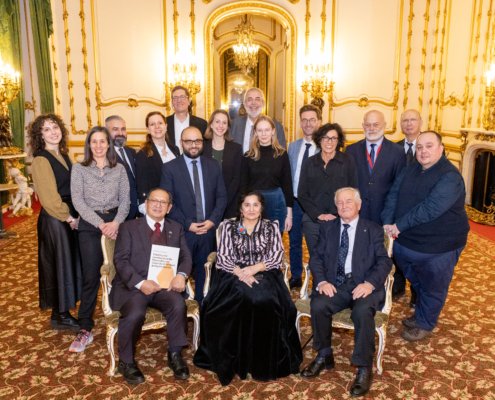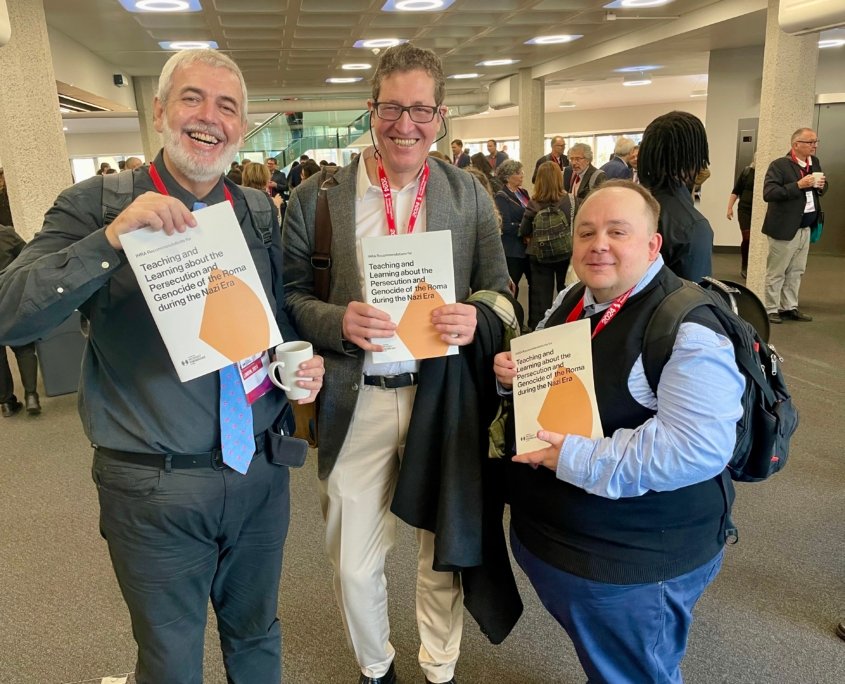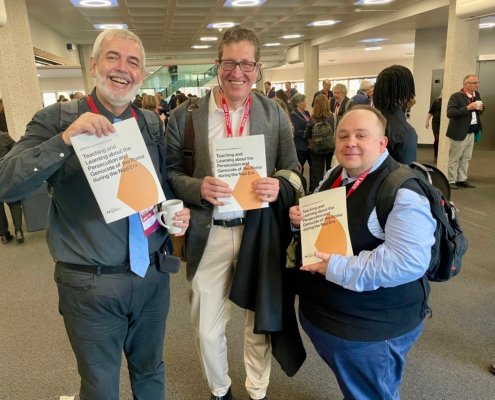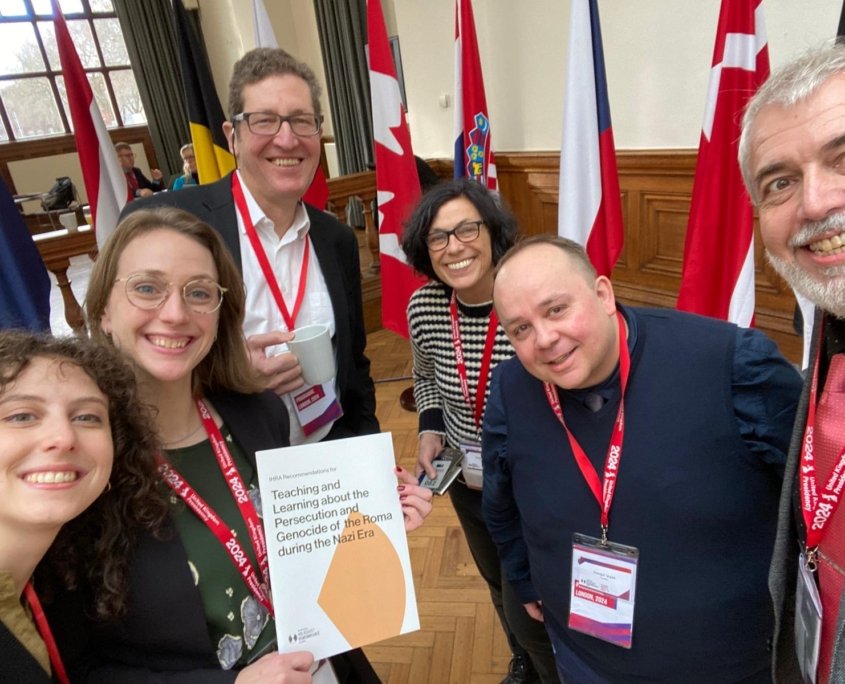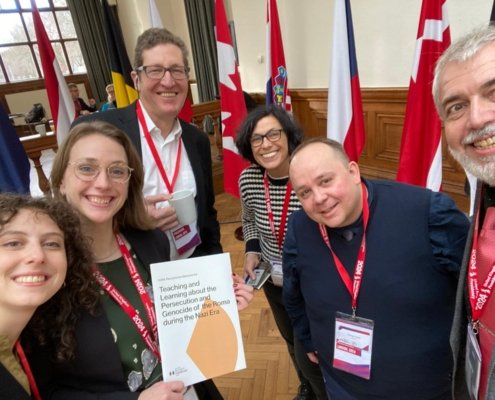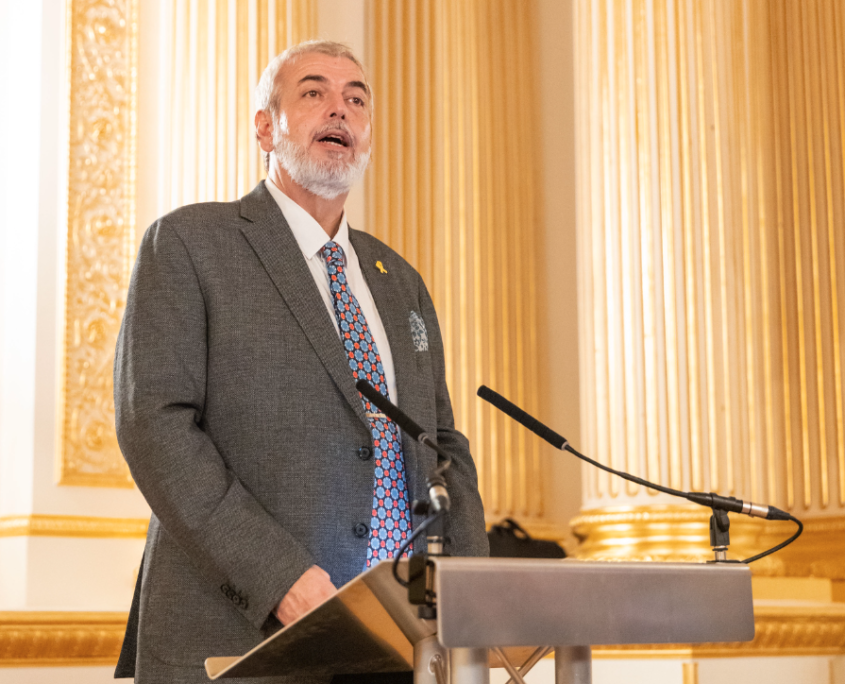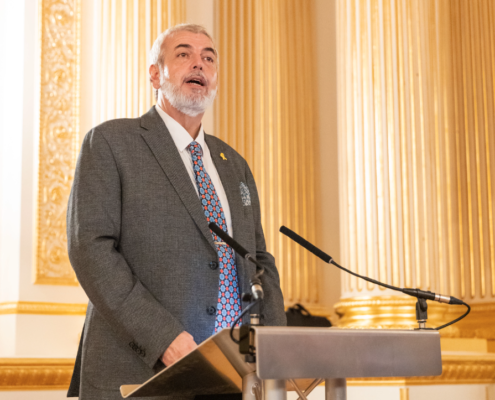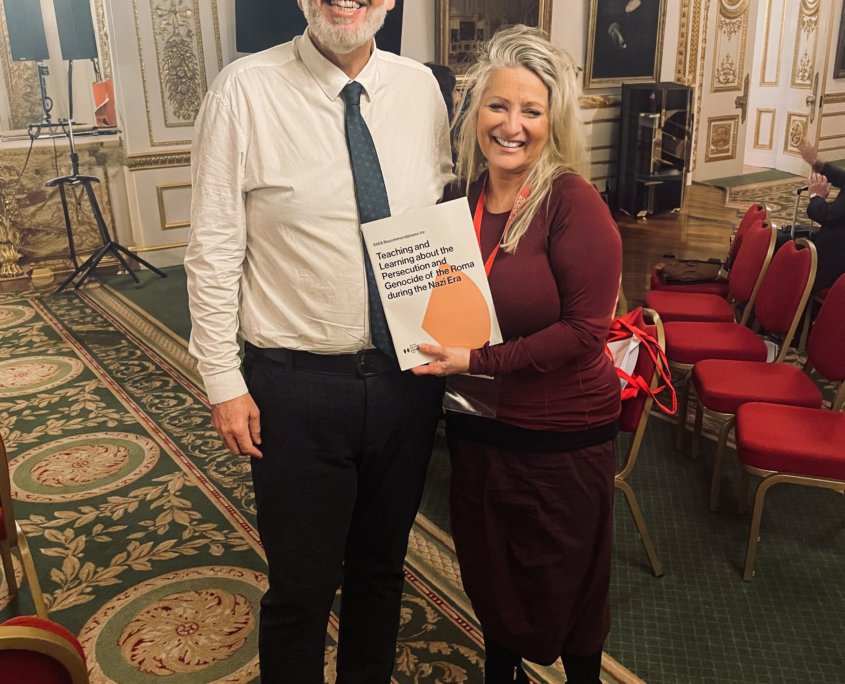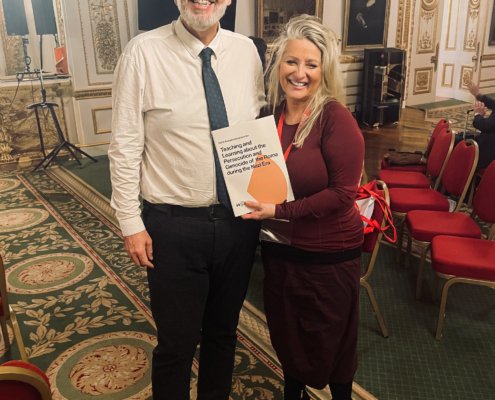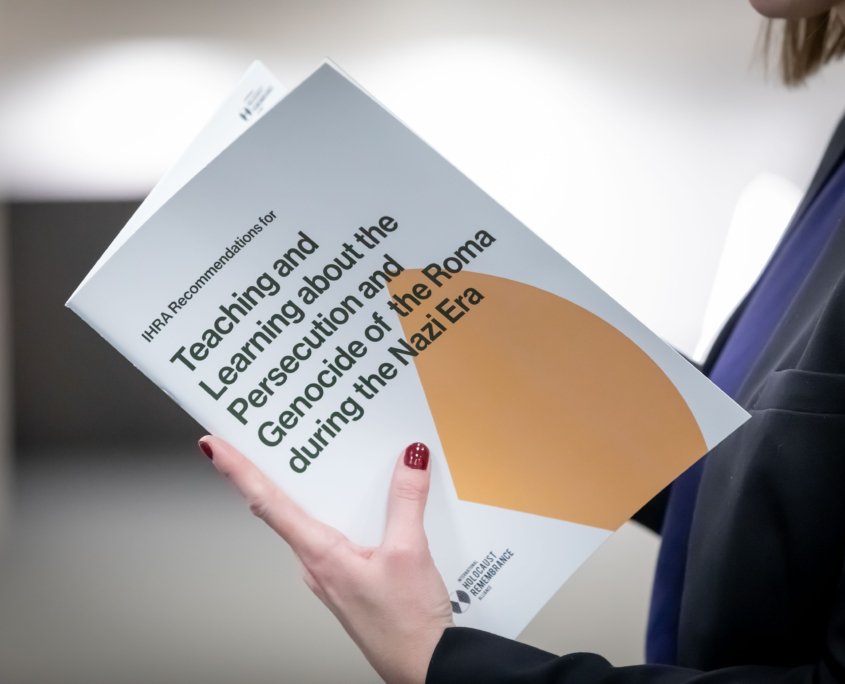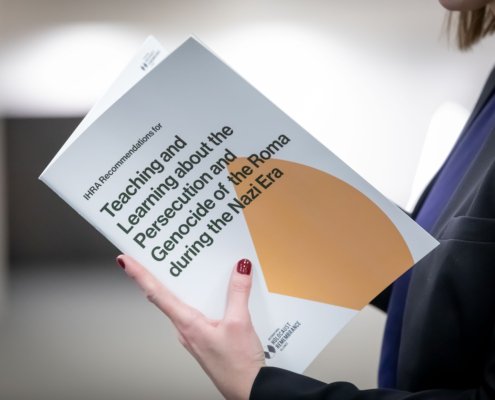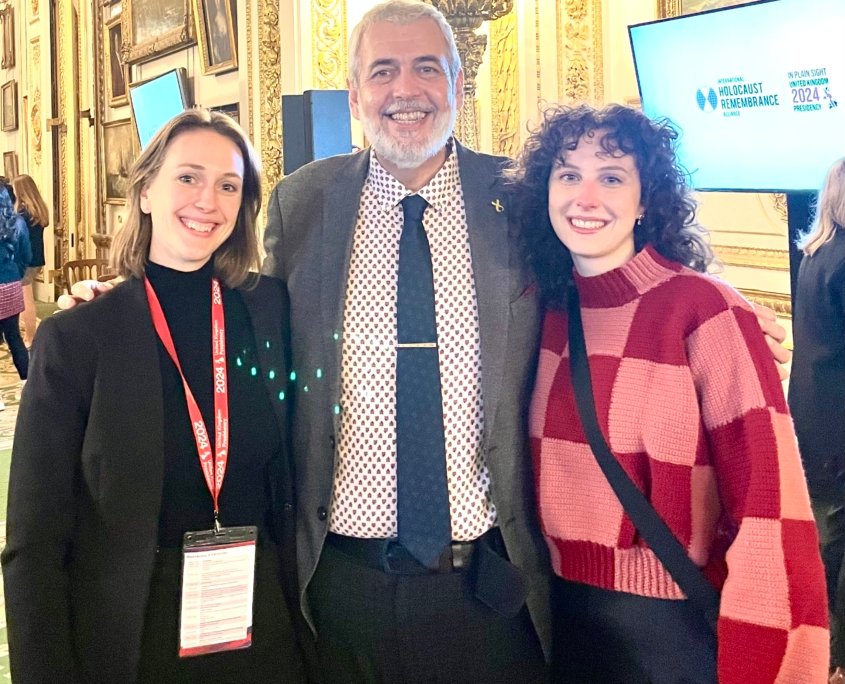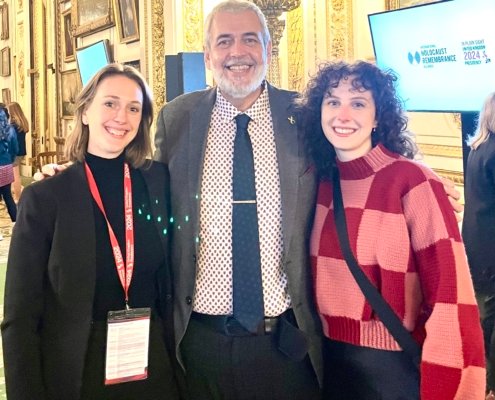Successful presentation at the meeting of the International Holocaust Remembrance Alliance (IHRA) in London
The Annual Meeting and Plenary Session of the International Holocaust Remembrance Alliance IHRA under the British Presidency was held in London from 1 to 6 December 2024. As part of a very intensive and relevant program over six days, over 300 delegates, officials and experts from 35 member states and permanent partner organizations (United Nations, UNESCO, European Union, Council of Europe, OSCE/ODIHR, Arolsen Archive, and others) had the opportunity to participate in the Conference on AI in the culture of remembrance, meetings of the IHRA working groups and committees, Plenary Session, and the Conference on the Genocide of the Roma.
As delegates of the Republic of Serbia to the International Holocaust Remembrance Alliance, Nevena Bajalica (since 2011) and Miško Stanišić since 2018) have made an extraordinarily active and successful participation in this gathering.
Presentations in IHRA working groups and committees
Miško Stanišić had several notable presentations. The most important was undoubtedly the presentation of the new Recommendations for Teaching and Learning about the Persecution and Genocide of Roma during the Nazi Era, the result of three years of work by IHRA experts led by Miško. He presented the new IHRA Recommendations at the Working Group on Education, the Committee on Genocide of the Roma, as part of a special workshop for heads of delegations, and at the conference on genocide against Roma held on the last day. In addition, as part of the program on good practice in commemorating the anniversaries of important days of remembrance, he presented the commemoration of 80 years of the deportation of Jews from Bačka held on April 25 in Novi Sad, and as an example of work on the fight against antisemitism, the new resource “ABC on Antisemitism” – the only source of information of this kind on antisemitism in the Republic of Serbia. Also, Miško was selected as part of the expert team that will work on improving and renewing the Recommendations for Learning and Teaching about the Holocaust as part of the new IHRA project. Nevena Bajalica took an active part in the Working Group for Memorials and Museums, and project groups dealing with the Charter on the Preservation of Memorial Sites and Access to Archival Material.
Within the framework of numerous meetings with colleagues from all over the world, various joint projects, guest appearances and other activities were agreed.
Terraforming Exhibition, Publications and Teaching Materials at the IHRA Session in London
At the invitation of the British IHRA Presidency, Terraforming had the honor to present the exhibition and publications “A Backpack Full of Memories – Some Words about the Holocaust in Serbia” during all days of the plenary session of the International Holocaust Remembrance Alliance (IHRA) in London, first on December 2-4 at the Queen Elisabeth II Center in Westminster next to the British Parliament, and then during the main plenary session on December 5 at The Royal Horticultural Halls. The exhibition is dedicated to the Holocaust in Serbia and our educational graphic novels and the “Ester” methodology.
We are especially proud that our work has been recognized globally in this way and that at such an important gathering we had the opportunity to contribute to introducing international experts and delegates to the history of suffering and resistance in our country during the Second World War.
The IHRA Plenary Session in London brought together delegations from 35 member states with the aim of advancing global cooperation in the field of Holocaust education, research and remembrance. In this way, over 300 delegates had the opportunity to get better acquainted with modern methods of learning and approaches to this topic that are applied in the Republic of Serbia through an exhibition on our educational graphic novels. The Ester educational methodology contributes to the education of young people and the general public, and enables teachers to effectively approach complex historical topics.
For this occasion, we have prepared and printed a number of materials in English: from the publication “Some Words about the Holocaust in Serbia”, through the catalog of our graphic novels, to copies of our award-winning publications.
IHRA delegates showed great interest in the exhibition and practically grabbed all our materials. This success is the result of the dedication and effort of our team and a number of other experts with whom we have collaborated to create Terraforming’s educational materials. We would like to express our special gratitude to the British Presidency of the IHRA for the invitation and the opportunity to present our work to eminent international officials.
We would also like to thank the Embassy of the Republic of Serbia in London for their support and organizational assistance, as well as AirSerbia for their kindness and assistance with the transport of exhibition materials from Belgrade to London.
Over 300 delegates from 35 member countries of the International Holocaust Remembrance Alliance (IHRA) inspected our exhibition in London with great interest.
Colleagues Dr. Robert Williams (Advisor to the IHRA, the Finci-Viterbi Executive Director of the USC Shoah Foundation, UNESCO Chair on Antisemitism and Holocaust Research) and Anna Míšková (Museum of Romani Culture/Lety u Písek – The Memorial to the Holocaust of the Roma and Sinti in Bohemia) with copies of our publications and educational materials taken over at the Terraforming exhibition in London.
IHRA Recommendations for Teaching and Learning about the Persecution and Genocide of the Roma during the Nazi Era
At the plenary session in London, the High Representatives and Heads of Delegations of the 35 member states of the International Holocaust Remembrance Alliance (IHRA) formally adopted the “Recommendations for Teaching and Teaching on the Persecution and Genocide of the Roma during the Nazi Era.” Over the past three years, Miško Stanišić, Director of Terraforming, has been the Chair of the IHRA Expert Working Group and the leader of the project to create Recommendations – a comprehensive guide for policymakers and educators to include the topic of Roma genocide in curricula in a modern and inclusive way according to the highest international standards.
This is the first time that a delegate of the Republic of Serbia has had the privilege and obligation to lead an official IHRA project of such importance, which is certainly a compliment for our delegation and our country.
At a gala reception hosted by the UK IHRA Presidency on 5 December 2024 in the beautiful Lancaster House Hall in London, “Recommendations for Teaching and Teaching on the Persecution and Genocide of the Roma during the Nazi Era” were launched and presented to the international public. The ceremony was attended by heads of national IHRA delegations, representatives of Roma organizations and communities across Europe, eminent experts, members of both houses of the British Parliament, and other officials.
Focus on the social processes that led to persecution, the lasting consequences of genocide, as well as the roles of various fascist regimes and local collaborators in crimes against Roma
On this occasion, the attendees were addressed by Lord Eric Pickles, President of the British IHRA Presidency, Miško Stanišić as the Chair of the Project, and the Swiss Delegate Stephen Lederich, Chairman of the IHRA Committee on the Genocide of the Roma.
In his address, Miško Stanišić pointed out that it is necessary to work on changing the attitude towards remembrance and education about the genocide against the Roma, and that the IHRA Recommendations represent a turning point in this field that has been neglected for years. It is particularly important to work on strengthening the understanding of the connection between the crimes committed against Roma in WWII and contemporary antigypsyism and discrimination against Roma, he pointed out.
The recommendations pave the way for a better understanding of the historical events that led to crimes against Roma, the social processes that led to persecution and the lasting consequences of genocide, as well as the role of various fascist regimes and local collaborators. This document proposes solutions in terms of promoting inclusive education on this topic and providing space for the voices of Roma, both teachers and students of Roma nationality, as well as representatives of local Roma communities. The “Recommendations for Teaching and Teaching on the Persecution and Genocide of the Roma during the Nazi Era” contribute to the IHRA strategic goals for preserving the historical record of the Holocaust and the Roma genocide and combating the distortion and abuse of history.
Through practical guidelines for the development of curricula, educational resources, and training for teachers, and by emphasizing that the lack of awareness of the Roma genocide is directly linked to contemporary antigypsyism, the Recommendations contribute to the promotion of tolerance and the prevention of genocide through human rights education. Read more about Recommendations on the page dedicated to this critical resource.
Miško Stanišić spoke at the ceremony on the occasion of the promotion of the Recommendations.
A report on RTS about our contribution to the plenary session of the International Alliance IHRA.
Members of the IHRA expert team with distinguished guests from Roma organizations from Austria, Poland, Germany, Finland, Sweden, Great Britain and Romania at a ceremony at Lancaster House in London.

